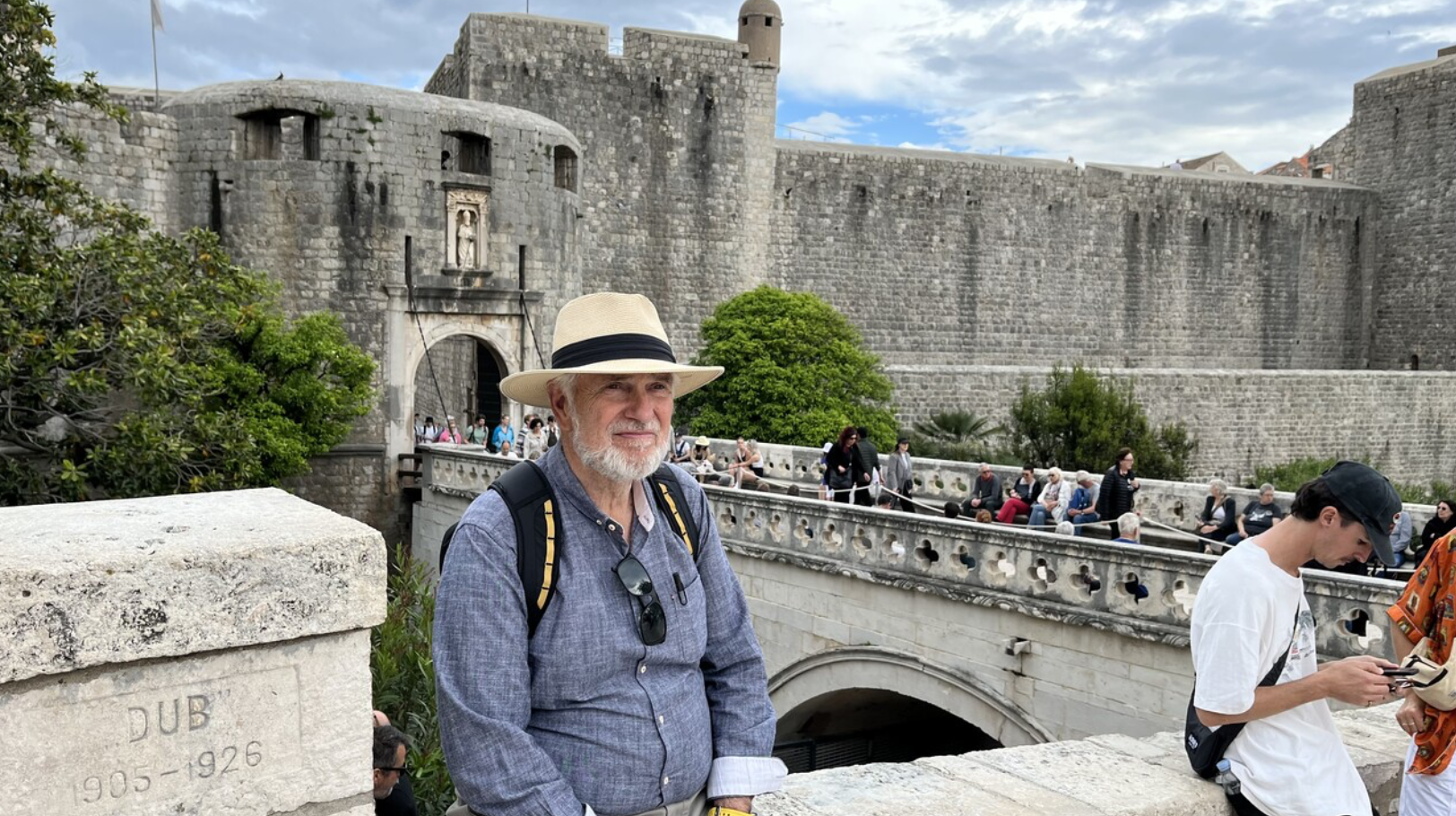Bladder cancer patient stories
Sharing patient stories is common across cancer care and serves as a powerful tool to raise awareness about the disease and to shed light on the patient experience. Patient stories have shown to positively influence healthcare system transformation over the years, and are a catalyst for more patient-centred care.
Equally, sharing personal stories about bladder cancer can be extremely helpful to others who may be going through the same thing. They can create a sense of community – making people feel less alone during a time that can be scary and isolating. For others who may be in an earlier stage of care, patient stories provide people with knowledge about what to expect throughout the entire care pathway.
Scroll below and read bladder cancer stories and share your own. We hope that they can provide you with useful information about different experiences with bladder cancer, and equip you with the knowledge needed to confidently manage your disease. You can find more from organisations close to you on our Our Network page.
On International Women’s Day, we launched a new campaign to shine a light on the untold struggles of women with bladder cancer through a video series. We interviewed 5 women from across the world, highlighting their unique experiences with bladder cancer.
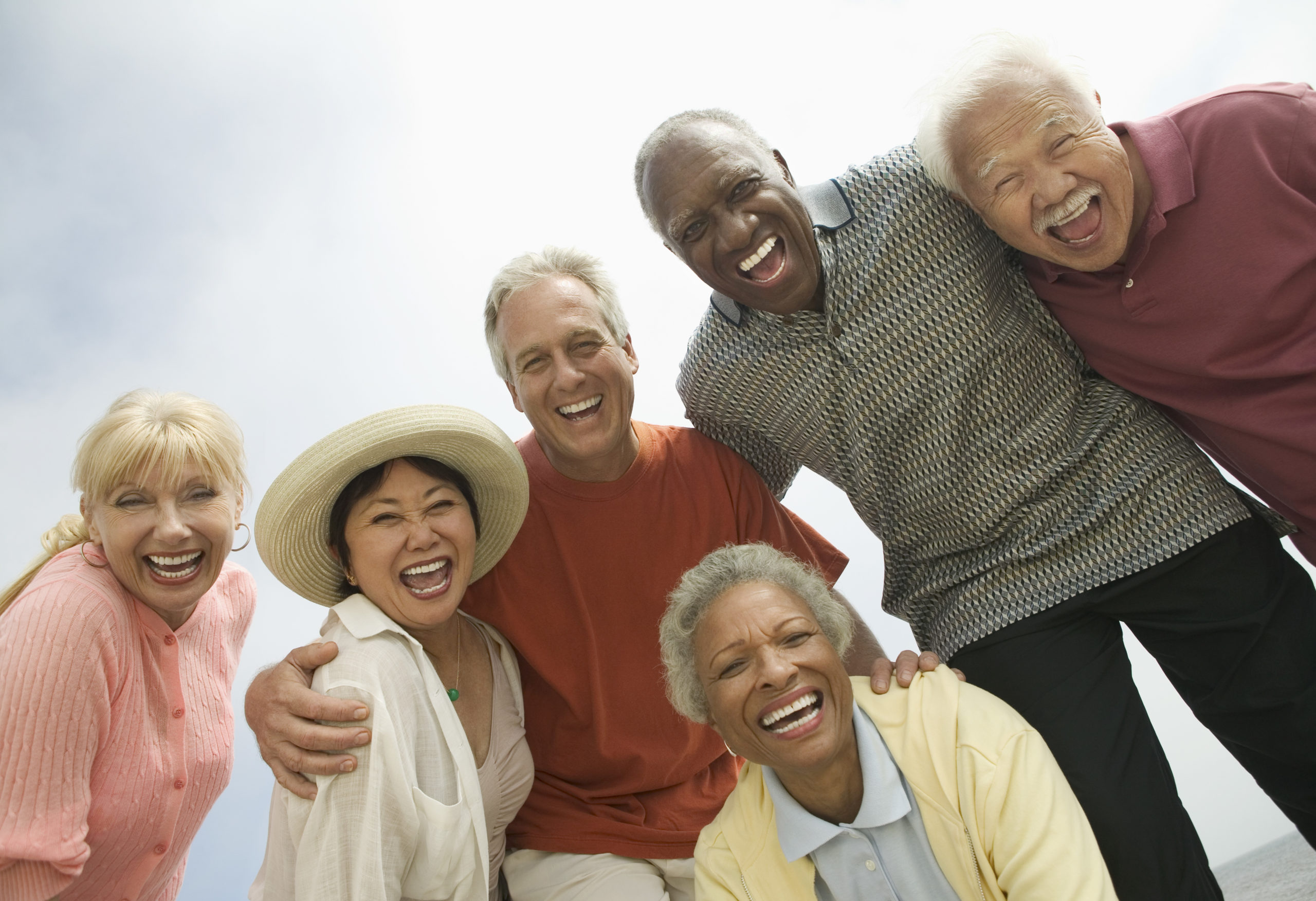
Read the stories of patients affected by bladder cancer
Reading patient stories can be very helpful when trying to make sense of other patients’ diagnoses or bladder cancer journeys and your own. These bladder cancer patient stories can be very powerful in helping to raise awareness of bladder cancer and highlight the urgent need for new treatments, research and support for those living with the disease. We are grateful to everyone who has shared their bladder cancer story with us.
Share your story and help others facing a bladder cancer diagnosis. Fill in this form.
Tell us about the symptoms you have experienced and how you dealt with them?
Blood in my urine was the first noticeable symptom. My urine appeared red. I also had pain when urinating, an abnormal burning sensation, lower back pain and other symptoms.
Tell us about how you received your bladder cancer diagnosis?
A high fever led to further tests. A cystoscopy at the University Clinics of Kinshasa enabled the diagnosis to be made. This showed how fast and serious the situation was.
Tell us about your feelings and emotions at the time you received your bladder cancer diagnosis?
I felt an initial shock followed by fear and anxiety about the unknown. Sadness also settled in. I felt anger, frustration, isolation, resignation and a desire to fight.
Who was the first person you told about your bladder cancer diagnosis?
A friend named Dagune Dangama.
What life changes have you made since diagnosis?
I reorganised the priorities in my life. It had an impact on my body image. My relationships changed.
Tell us about your experience with bladder cancer treatment. How long did it last? Did you experience side effects?
I did not have a normal experience. It is complicated.
What advice would you give to others who may be newly diagnosed with bladder cancer?
Look for a urologist specialising in urinary and medical oncology. Do not hesitate to ask for a second opinion, especially to understand the treatment options. Keep a journal of all your appointments and clearly ask for details about the stages. Often prioritise psychological and social support.
Have you reached out to other bladder cancer patients or been part of a bladder cancer support group?
No. However, I cannot confirm the existence of such groups. Connecting patients with cancer is crucial in the Democratic Republic of the Congo.
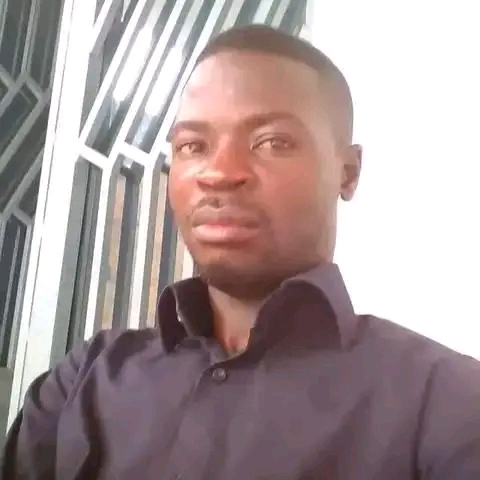
Tell us about the symptoms you have experienced and how you dealt with them?
In 2021, I had two episodes of blood in my urine. I consulted a gynecologist, but he thought it was related to sexual activity. Later on, I started having urinary tract infections. It wasn’t until two years later that the real cause was discovered.
Tell us about how you received your bladder cancer diagnosis?
Through an ultrasound.
Tell us about your feelings and emotions at the time you received your bladder cancer diagnosis?
I was very afraid, everything stopped for me. The sonographer told me I should see a urologist because I had a bladder polyp. I already knew that anything in the bladder was not a good sign.
Who was the first person you told about your bladder cancer diagnosis?
A friend who is a urologist. I called him immediately.
What life changes have you made since diagnosis?
I’ve learned to value life so much more. I’ve learned to forgive, to love life deeply, and to find meaning in each day.
Tell us about your experience with bladder cancer treatment? How long did it last? Did you experience side effects?
In my case, and thank God, I didn’t need treatment. I only go for regular cystoscopy check-ups as advised by my doctor.
What advice would you give to others who may be newly diagnosed with bladder cancer?
Follow your doctors’ advice to the letter. Never smoke again, although I had already quit smoking when I was diagnosed, tobacco is the main cause. And most importantly, don’t lose hope. Science today offers more and more options.
Have you reached out to other bladder cancer patients or been part of a bladder cancer support group?
No, but I have collaborated and shared my story with Fundación Sales.
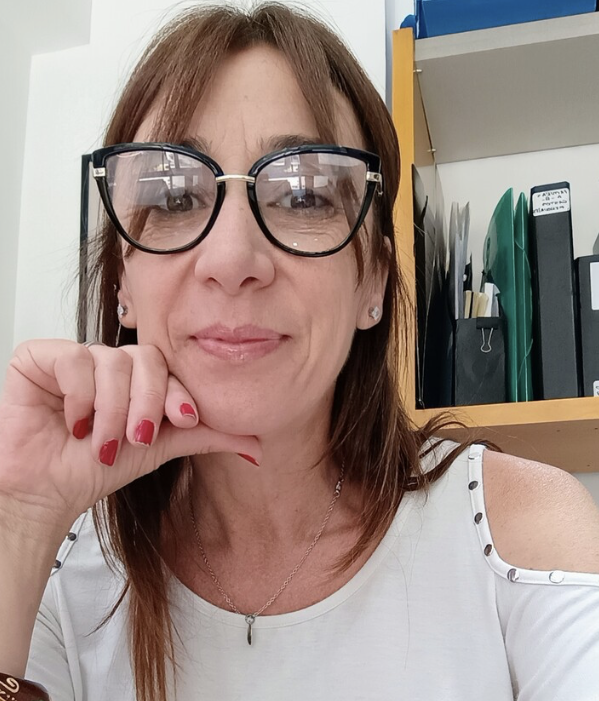
Tell us about the symptoms you have experienced and how you dealt with them?
In June 2022, I experienced a bleed that I initially thought was gynecological, but in hindsight, it may have been hematuria. Another bleed occurred in February 2023, attributed to a significant urinary tract infection (UTI) that cleared after a course of antibiotics.
I had an ultrasound scan in June 2022, requested by the gynecology department. The gynecologist reassured me that there was no cancer and subsequently discharged me. However, when I signed up for Patients Know Best in October 2022, the ultrasound scan report from June 2022 appeared on my site in April 2023. Alongside gynecological information, the report mentioned incidental bladder lesions, which the gynecologist hadn’t informed me about.
I contacted my general practitioner (GP), who also had not been informed. Initially, the GP believed that if the gynecologist had concerns, he would have referred me to urology. However, he eventually agreed to request another scan in June 2023. This scan showed that the lesions were still present but had not grown, so the GP assured me they were stable and benign. He said he would refer me to urology for a routine check-up. Since I had no further symptoms and felt fine, I was reassured by the GP’s response.
Tell us about how you received your bladder cancer diagnosis?
In early July 2023, I received an appointment for a telephone consultation with urology. I expected reassurance and discharge, but instead, I was told that bladder cancer couldn’t be ruled out without further investigations. I had blood tests, a CT scan, and an appointment for a cystoscopy in mid-July 2023. However, the clinician couldn’t perform the cystoscopy due to an asymptomatic UTI. Given the strong indication of cancer from the CT scan, it was decided to proceed with a TURBT operation as soon as possible rather than wait for the UTI to clear.
I underwent surgery on August 1, 2023, and was discharged after an overnight stay, still not knowing if it was cancer. After two weeks, I tried contacting the urology department for my diagnosis, but I only reached an answering machine with a promise to call back, which never happened. Eventually, I received an online appointment letter for mid-September 2023, referencing oncology, which confirmed my cancer diagnosis.
Tell us about your feelings and emotions at the time you received your bladder cancer diagnosis?
When I received the online letter, I was both overwhelmed and extremely distressed. Fortunately, a good friend was with me at the time. I was terrified because I knew I should have been diagnosed the previous year, and I didn’t know how that delay would affect my outcome. I felt completely unsupported by the hospital, having no relationship with anyone there.
I called the Macmillan Cancer Support helpline that day. Initially, I was too distressed to speak, but they were marvelous. It was the first time I felt understood. They informed me that no one should receive a cancer diagnosis by letter and encouraged me to insist on transferring to another hospital immediately. This was the best decision I made, as I have received excellent care both mentally and physically at my chosen hospital since then.
Who was the first person you told about your bladder cancer diagnosis?
The first person I told about my bladder cancer diagnosis was the friend who was with me when I received the online appointment letter. She remained calm and supportive when I couldn’t.
What life changes have you made since diagnosis?
Having undergone chemotherapy and one recurrence of non-muscle invasive bladder cancer, followed by my first clear check-up, I feel extremely fortunate despite the issues surrounding my diagnosis. I now appreciate my life and what I have in a way I never did before. When I get upset about trivial matters, I remind myself that they are not worth the energy.
I’m also more aware of the emotional rollercoaster that comes with a cancer diagnosis and beyond, especially the waiting periods for results. I make it a point to let others know I’m thinking of them during those times, as people did for me. Additionally, I avoid getting dehydrated and always carry water with me.
Tell us about your experience with bladder cancer treatment? How long did it last? Did you experience side effects?
I have had two TURBT surgeries: an overnight stay for the first and a day surgery for the second. I experienced only minor discomfort afterward, though the general anesthetic left me feeling fatigued for a few days.
I also had a six-week course of targeted chemotherapy, with sessions once a week. I was nervous and unsure about the first session, but the Maggie’s Cancer Centre at the hospital was very supportive. A counselor reassured me that the choice to undergo treatment was mine and that I wasn’t committed to all six sessions if I didn’t feel up to it. Being reminded of my autonomy was important, and with encouragement and support from a lovely nurse specialist, I completed all six sessions. The sessions lasted about 10 minutes each, and I experienced some tiredness in the third week, as the nurse had warned me.
What advice would you give to others who may be newly diagnosed with bladder cancer?
My advice would be to focus on the treatment first. Once that is underway, begin improving other aspects of your health to support your overall well-being during and after treatment.
Have you reached out to other bladder cancer patients or been part of a bladder cancer support group?
My advice to others newly diagnosed with bladder cancer is to go with how you feel. Talk about it when you need to, whether to friends, family, or someone from Fight Bladder Cancer. Listen to your body and rest when you need to.
This stock image is provided for illustration purposes.
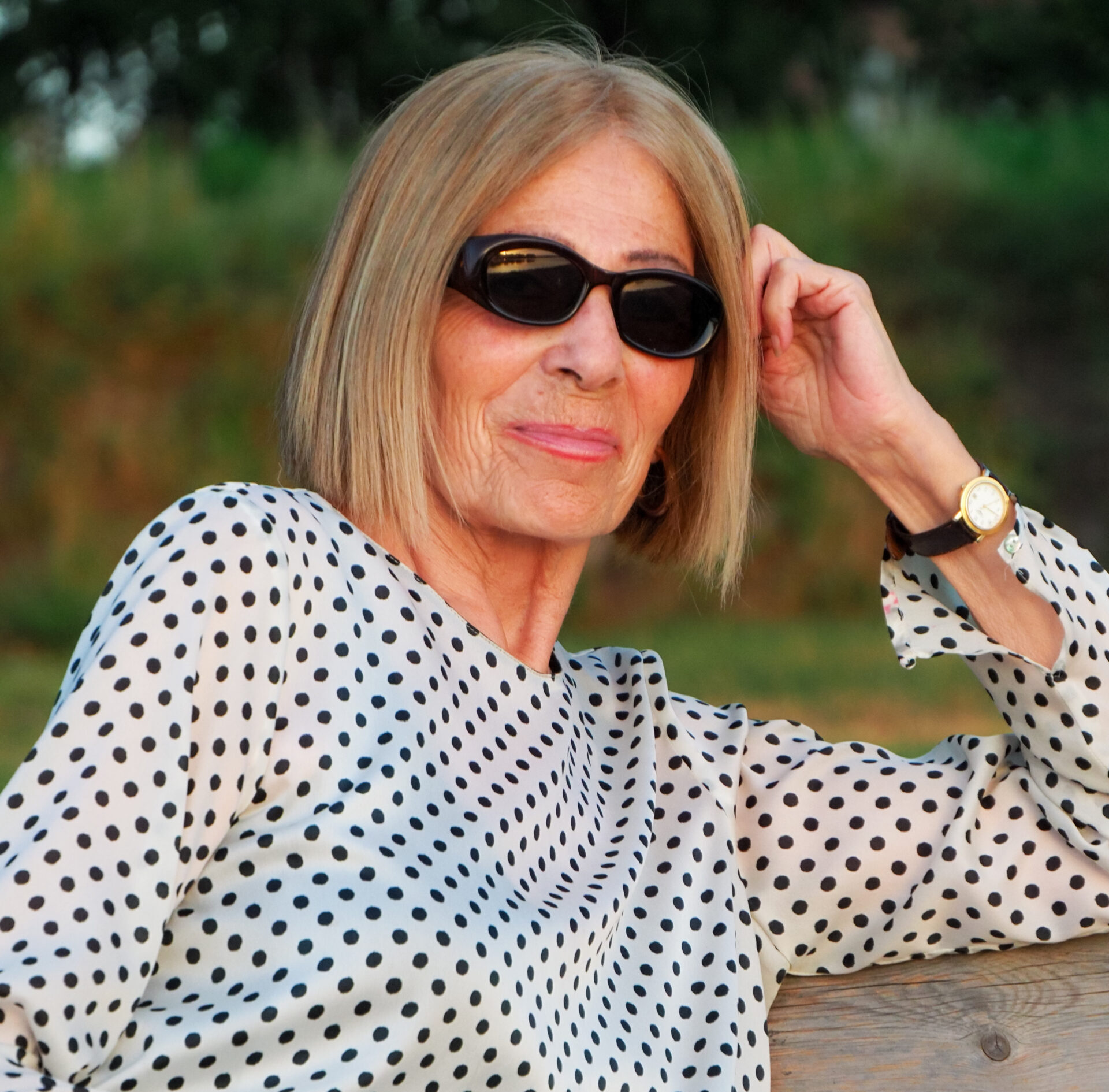
Tell us about the symptoms you have experienced and how you dealt with them?
Initially, the only noticeable symptom was that my urine appeared pale pink for a period of two days. Other than that, there weren’t any obvious symptoms at the time. However, looking back, I realise that I had been feeling unusually tired, a fatigue that seemed to pervade every aspect of my daily routine, though I only connected this retrospectively.
Tell us about how you received your bladder cancer diagnosis?
The suspicion of cancer came almost immediately after my general practitioner contacted me following an ultrasound scan. There was no denial or disbelief, just a decisive readiness to face the diagnosis and manage it as swiftly as possible.
Tell us about your feelings and emotions at the time you received your bladder cancer diagnosis?
Surprisingly, I have not yet experienced the expected shock or emotional upheaval typically associated with such news. My approach has been markedly pragmatic – focused solely on the treatment. The major concern lingering in my mind until receiving the pathology report was the possibility of needing a radical cystectomy, which I was very keen to avoid.
Who was the first person you told about your bladder cancer diagnosis?
It’s hard to recall exactly who the first person was that I spoke to about the diagnosis—it might have been my husband.
What life changes have you made since diagnosis?
In response to the diagnosis, I’ve made several significant lifestyle adjustments. I increased my running regimen from 25 kilometers to 25 miles per week, completely stopped consuming alcohol, dedicated efforts towards bettering my sleep quality, and significantly increased my intake of fruits and vegetables while attempting to reduce my consumption of ultra-processed foods.
Tell us about your experience with bladder cancer treatment? How long did it last? Did you experience side effects?
The treatment process spanned a couple of months from the initial ultrasound to undergoing TURBT and a mitomycin wash. The immediate aftermath of the TURBT was incredibly challenging; I experienced severe pain comparable to labor for about 24 hours. However, my condition gradually improved over the next four days. The stent used was quite uncomfortable but was removed after three weeks. A second cystoscopy was performed three months later which showed no evidence of disease (NED). My next flexible cystoscopy is scheduled for nine months after the last.
What advice would you give to others who may be newly diagnosed with bladder cancer?
My advice would be to focus on the treatment first. Once that is underway, begin improving other aspects of your health to support your overall well-being during and after treatment.
Have you reached out to other bladder cancer patients or been part of a bladder cancer support group?
No, I have not reached out to other patients nor have I joined any support groups for bladder cancer.
This stock image is provided for illustration purposes.
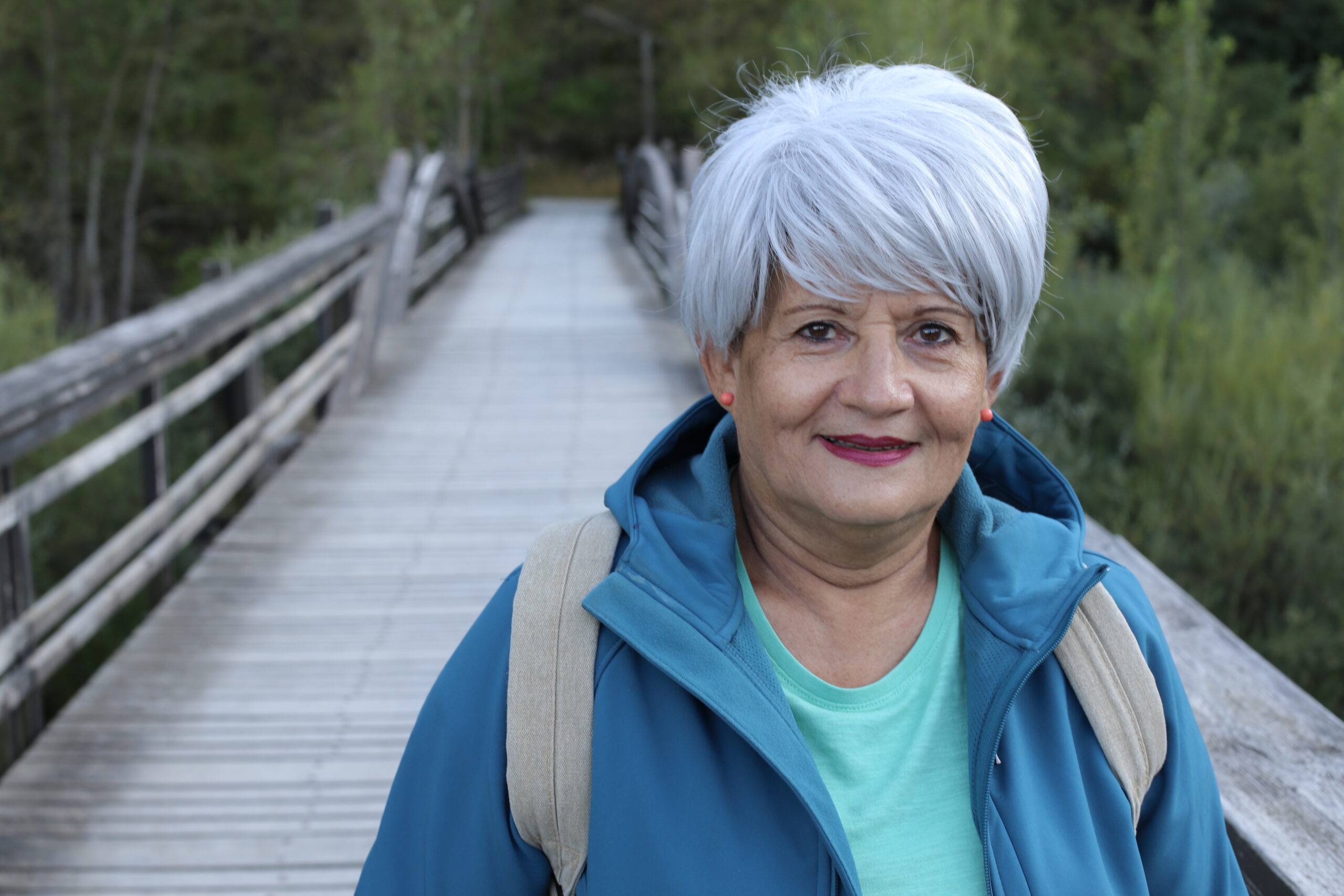
Tell us about the symptoms you experienced and how you dealt with them.
The symptoms started with progressive cystitis for several months, difficulty urinating, needing to go to the bathroom more than six times at night, feeling like I couldn’t completely empty my bladder, light bleeding at first, and then the bleeding became very heavy and dark.
At first, I went to a urologist who treated it as a urinary tract infection. He ordered a prostate-specific antigen test and a physical exam to check my prostate size. I was prescribed Tamsulosin to help dilate the urinary tract and improve urination. This same approach was taken by the first three urologists I saw, and none of them ever considered a potential bladder issue.
Later, I underwent a CT scan, urine cytology, and cystoscopy, which eventually led to my bladder cancer diagnosis. This whole process took nearly seven months.
Tell us about how you received your bladder cancer diagnosis.
After going through multiple tests, the most devastating moment for me was receiving the urine cytology results.
I read the report in Madrid, Spain, where I’ve lived for many years. I opened the envelope at a bus stop. I didn’t cry at that moment, but I immediately realized that my life would change dramatically. The word “cancer” shattered me, and for the first time, I faced the possibility of death. The thought of death began to take over my mind.
I didn’t cry right away. It took me a few hours to accept that I was ill. True to my nature, I decided to take immediate action, preparing my affairs because I genuinely believed I was going to die, that my time on this earth was coming to an end.
Tell us about your feelings and emotions at the time you received your bladder cancer diagnosis.
Devastation. It was something that radically changed my life. Just seeing the word “carcinoma” and then the diagnosis of bladder cancer felt like a tombstone was placed on my head.
That was the moment I realized I had to make quick decisions, and that’s exactly what I did – I started to prepare for death.
Who was the first person you told about your bladder cancer diagnosis?
TThe first person I told was my wife. She was in Colombia at the time. One of the hardest parts of this journey was facing it alone. That’s how it was for my first surgery and the initial treatments. She came later.
What life changes have you made since your diagnosis?
I started believing in people again, letting go of hatred and resentment. I began to live each day with joy and hope, expecting the best out of every situation.
I changed my eating habits, gave up packaged and fried foods, stopped drinking sugary drinks, and began exercising more. I forgave those who once troubled my mind and learned that people make mistakes, and they must resolve their internal struggles. I no longer take things personally. I became closer to my family and my true friends.
Tell us about your experience with bladder cancer treatment. How long did it last? Did you experience side effects?
My first encounter with treatment was intravesical chemotherapy a day after my first tumor resection surgery. After that, I underwent eight BCG instillations. The process of having a catheter inserted through the urethra each time is uncomfortable, but eventually, you get used to it.
The side effects of keeping the liquid in my bladder for two hours were intense: severe burning when urinating afterward (lasting about two days), cystitis on the first day, light bleeding in the urine (which is normal), occasional urinary incontinence, and fatigue for two days.
Later, I had a second surgery to check my left kidney, and fortunately, everything was fine.
Then, I went through four more BCG sessions, with the side effects becoming more intense, especially the incontinence. However, it only lasted that day, and then everything went back to normal.
The entire treatment process lasted seven months, with breaks between each phase.
What advice would you give to others who may be newly diagnosed with bladder cancer?
Stay calm. It’s normal to feel frustrated, scared, and anxious, but maintaining a clear head can make all the difference.
If you notice any symptoms, no matter how minor, see a doctor. Do your research, seek advice, and don’t normalize the symptoms. Take action before it becomes life-threatening.
Don’t smoke – it’s the worst thing you can do. Be strong, VERY STRONG. Bladder cancer can be fought, and you can come out victorious.
Have you reached out to other bladder cancer patients or been part of a bladder cancer support group?
Yes, I’ve connected with other bladder cancer patients, shared experiences, and became friends with Laurent and David from CANVES in Spain. They helped me connect with Marie and Alex, allowing me to share my story.
I also founded Fundación Proyecto Cáncer in Colombia, where our main goal is to share stories of people who have battled cancer, not just bladder cancer. We aim to raise awareness about cancer and, in my particular case, bladder cancer.
We also focus on building networks so that foundations can support each other, become more visible, and help more people.
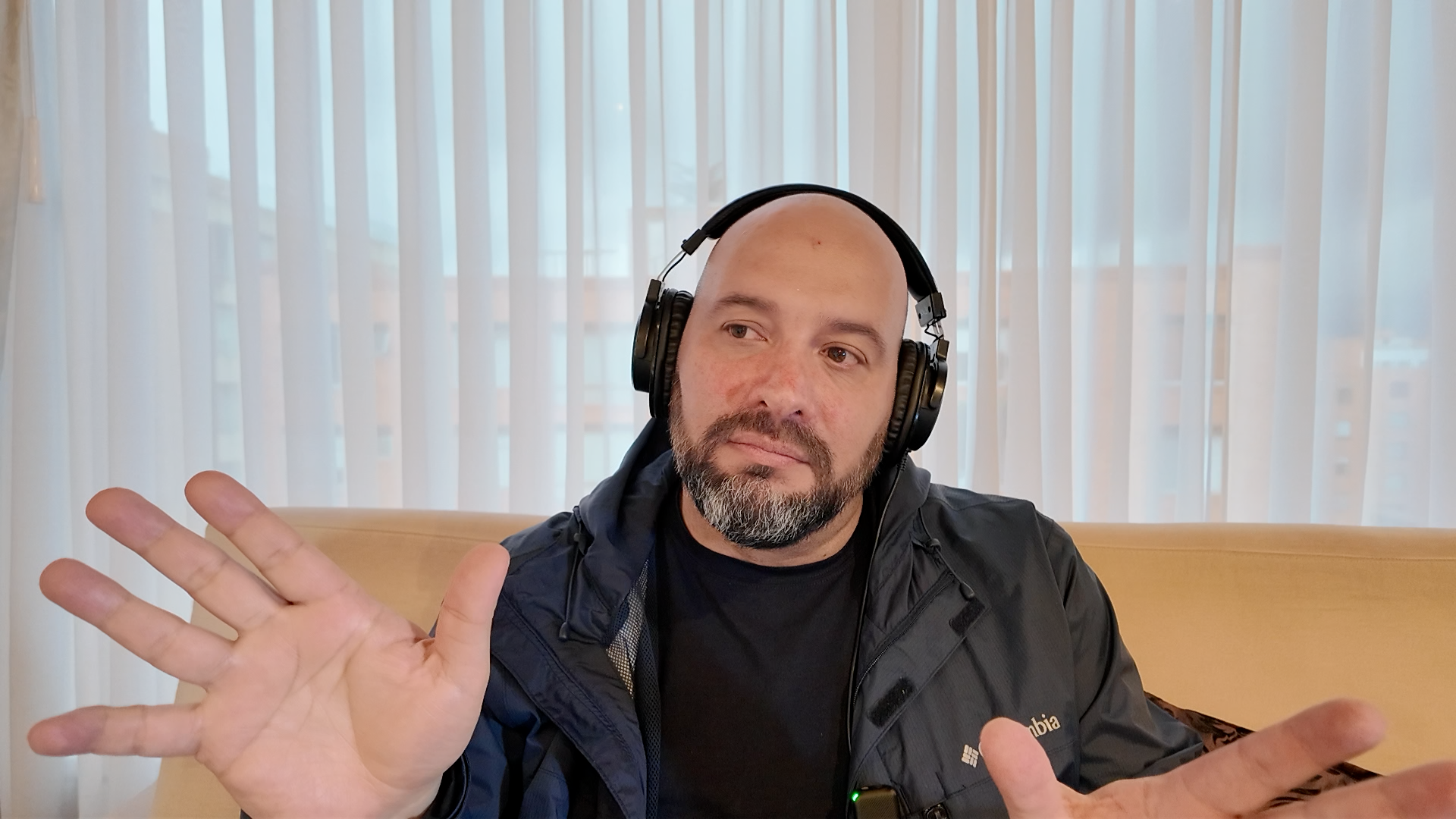
Went to the doctor and mentioned some episodes of blood in my urine after heavy exercise which I had out down to Runners Bladder. Urine Sample followed by CT scan followed by TURBT and biopsy results show T1 tumour. 6-week course of BCG starting in 6 weeks’ time.
Which symptoms have you experienced and how have you dealt with them?
Blood in urine – kidded myself that it was Runners Bladder. Urgency to pee – put it down to getting older and the fact I drink lots of water.
What advice would you give to others who may be newly diagnosed with bladder cancer?
Do lots of research, ask lots of questions, keep positive attitude and don’t be afraid to share your experiences with others. If I can help one other person catch it early by sharing my story then I will have made a positive impact.
Have you reached out to other bladder cancer patients or been part of a bladder cancer support group?
I have joined many forums around the world and have connected with others on a similar journey in the USA and UK through Twitter searches. I am hungry for tips on how to face this journey and keen to offer support to others in any way I can. I will advocate for men’s health more so than ever before.
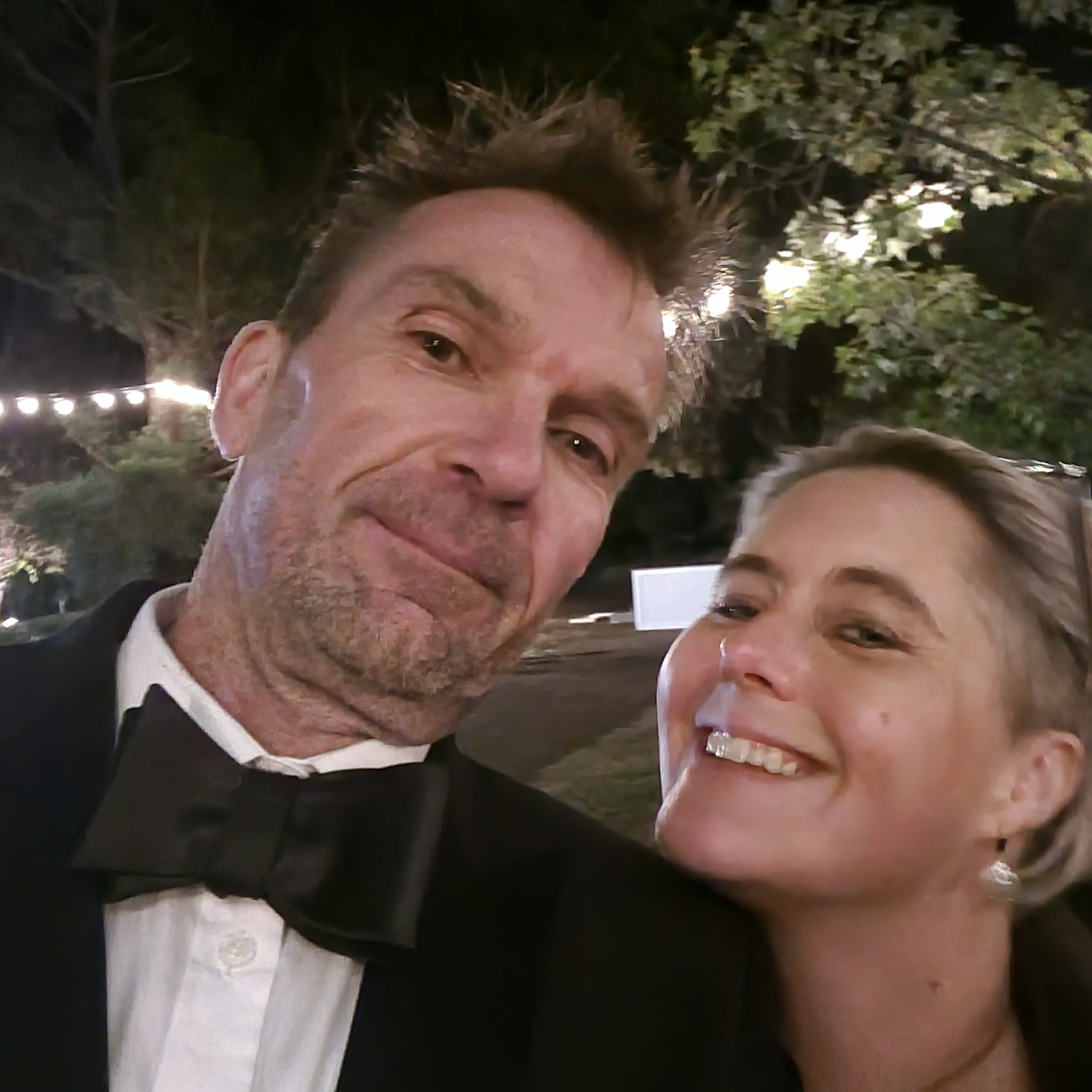
After I did a biopsy because a ct scan showed a tumour in my bladder. My urologist gave me the results of a cancer phase T1. It was a shock to me and my family. I didn’t have any symptoms that made me think of bladder cancer. I went to see a gastroenterologist for chronic constipation and by doing a sonogram that’s how he saw my tumour in the bladder.
Therefore I want to bring awareness to African people to check themselves and inform them about bladder cancer. I felt lucky enough to check myself to find out for another bigger problem than my constipation.
Which symptoms have you experienced and how have you dealt with them?
The only symptom was incontinence to hold before rushing to the bathroom, for a little moment and it kept me asking questions about why but the only thing I could think was menopause. I tried not to drink any water so I don’t get any accidents.
Tell us about your experience with bladder cancer treatment. How long did it last? Did you experience side effects?
As I just found out in July, I am at my 4th treatment. So far so good until yesterday’s ones as I felt a lot of pressure as treatment was going inside. I asked the nurse to slow down, and then later in the day, I felt a lot of fatigue, back pain and some bleeding. Also since the second treatment, I developed some rash (eczema) in some parts of my body. After 48 hours it goes away but comeback after every treatment. I also noticed my appetite is bigger. Some quick weight gain around my thighs and breasts.
What advice would you give to others who may be newly diagnosed with bladder cancer?
I would ask them to keep up their faith and have a positive mindset. To seek help and resources. Since my diagnosis, I only research bladder cancer and how to help myself heal from it. It’s good to communicate about it and get awareness on how to heal and help others heal.
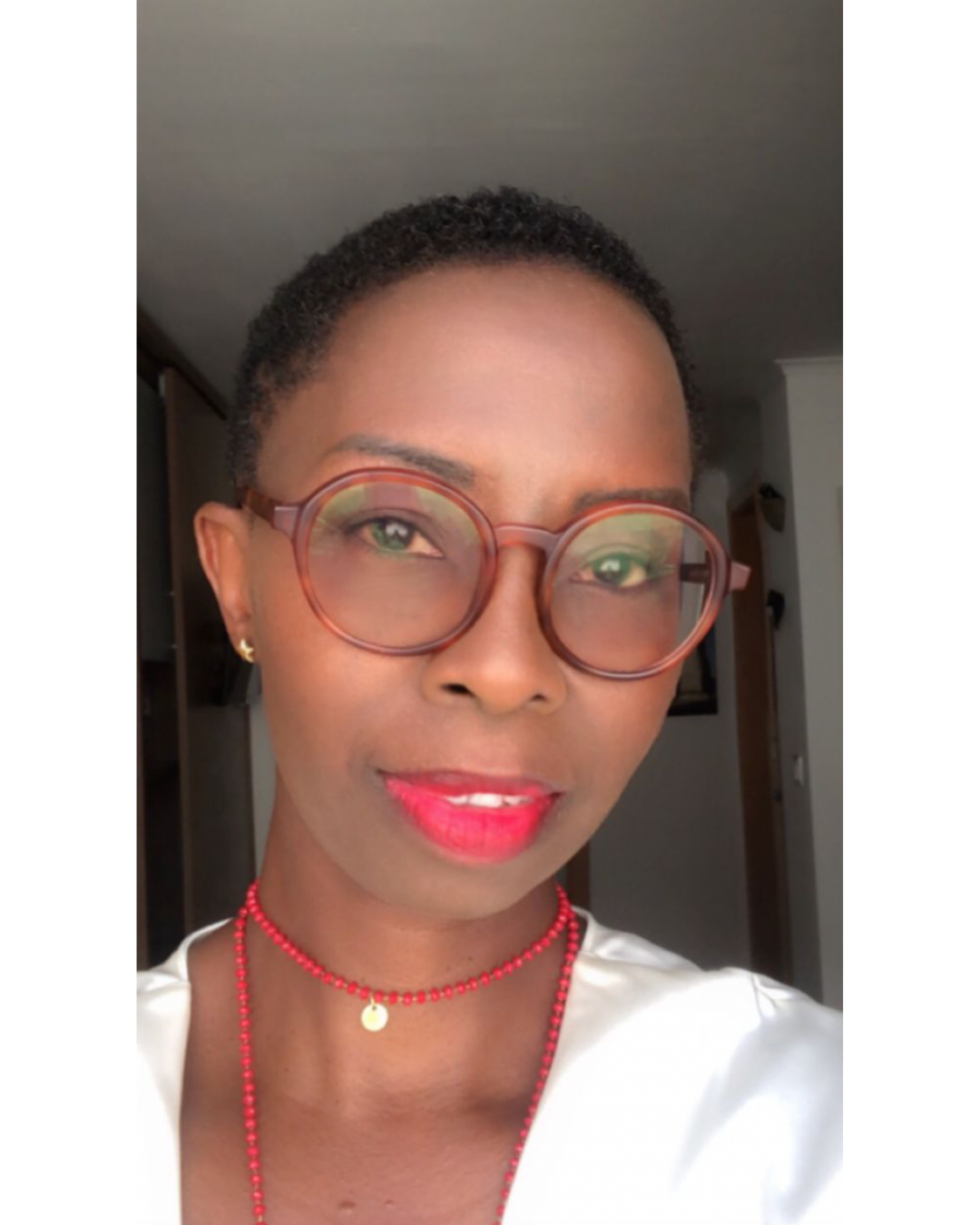
Tell us about the symptoms you have experienced and how you dealt with them?
At the beginning, I started noticing changes in my urination patterns, particularly feeling like I hadn’t completely emptied my bladder. It was unsettling, but I initially brushed it off as a minor issue, not realising it could be something more serious.
Tell us about how you received your bladder cancer diagnosis?
During my annual health checkup, I asked for a prostate test, thinking it might be a good idea given my age. They did a Prostate-Specific Antigen test along with an ultrasound exam. Surprisingly, this led to the discovery of my bladder cancer, something I hadn’t even considered.
Tell us about your feelings and emotions at the time you received your bladder cancer diagnosis?
I was in utter disbelief when I got the diagnosis. I had no noticeable symptoms that I associated with cancer, so the news hit me hard. I felt shock ripple through me, and a deep concern took hold, fearing this was a death sentence.
Who was the first person you told about your bladder cancer diagnosis?
The first person I confided in was my wife. She’s been my rock through all of this, providing me with incredible strength and support. I don’t know how I would have managed without her by my side.
What life changes have you made since diagnosis?
I’ve made several significant changes since the diagnosis. I cut out sugar, drastically reduced stress in my life, stopped drinking alcohol, and now I try to focus more on living in the moment, appreciating the present for what it is.
Tell us about your experience with bladder cancer treatment? How long did it last? Did you experience side effects?
My treatment involved 18 months of immunotherapy with Basillus Calmette-Guerin (BCG), complemented by routine cystoscopies and biopsies. The side effects grew more intense over time, including frequent urination, a burning sensation, fever, chills, skin rashes, and even low platelet counts. Despite regular treatments, my urine cytology continued to show atypical cells. Eventually, I was diagnosed with high-grade urothelial carcinoma with Carcinoma In-Situ (CIS). After 21 BCG cycles and facing a high-grade recurrence with prostatic infiltration, I had no choice but to undergo a radical cystectomy with ileal conduit.
What advice would you give to others who may be newly diagnosed with bladder cancer?
My advice to anyone newly diagnosed is to not go through this alone. Talk to your friends, and join a bladder cancer support group. Sharing your journey can make a significant difference, and you’ll find strength in the support of others who understand what you’re going through.
Have you reached out to other bladder cancer patients or been part of a bladder cancer support group?
Yes, I’ve connected with others through Facebook. It’s been somewhat challenging to find groups outside the UK, but I’ve managed. It’s clear to me that colorectal cancer gets more attention than bladder cancer, but every connection and piece of shared advice helps.
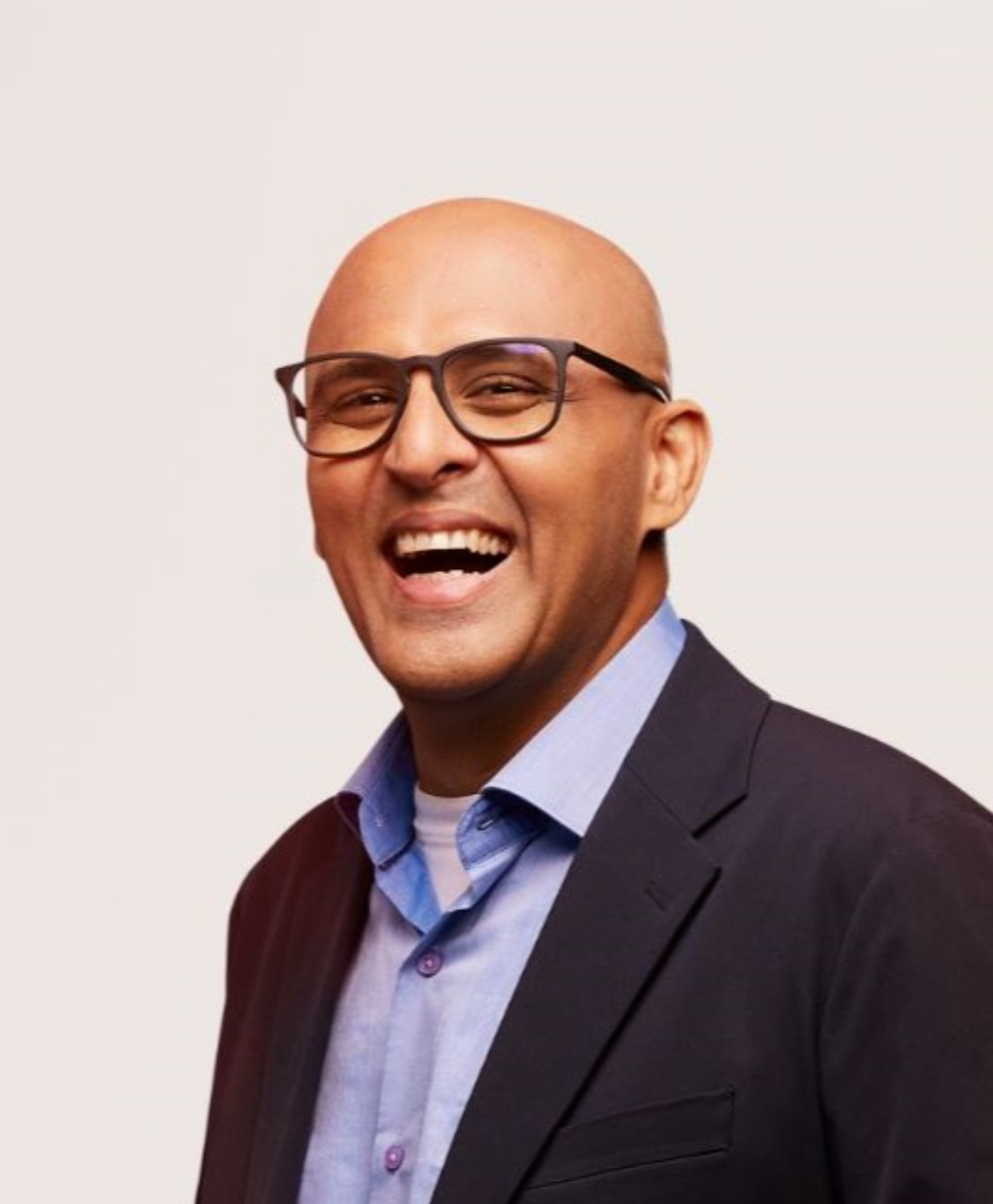
I was mindblown when I found out that I had bladder cancer. I did not know how to react, it was very hard. My family still does not know yet. I’m waiting to finish my studies to find out if it metastasised or not.
When it all started, I had no symptoms, just some little bleeding in the urine, which according to my gynaecologist was due to a benign myoma in the endometrium. Besides that, I had no symptoms at all. I could work normally. The diagnosis came after I decided to change doctor: I went to a urologist because I felt that what my gynaecologist said was not correct. A sign, I put in a tampon for a urine culture and I bled just the same. Tests, ultrasound scans of the urinary system, cystoscopy and CAT scan of the abdomen. It took 1 year to reach the diagnosis which was bladder cancer.
What advice would you give to others who may be newly diagnosed with bladder cancer?
Wait for the best possible treatment.
This stock image is provided for illustration purposes.
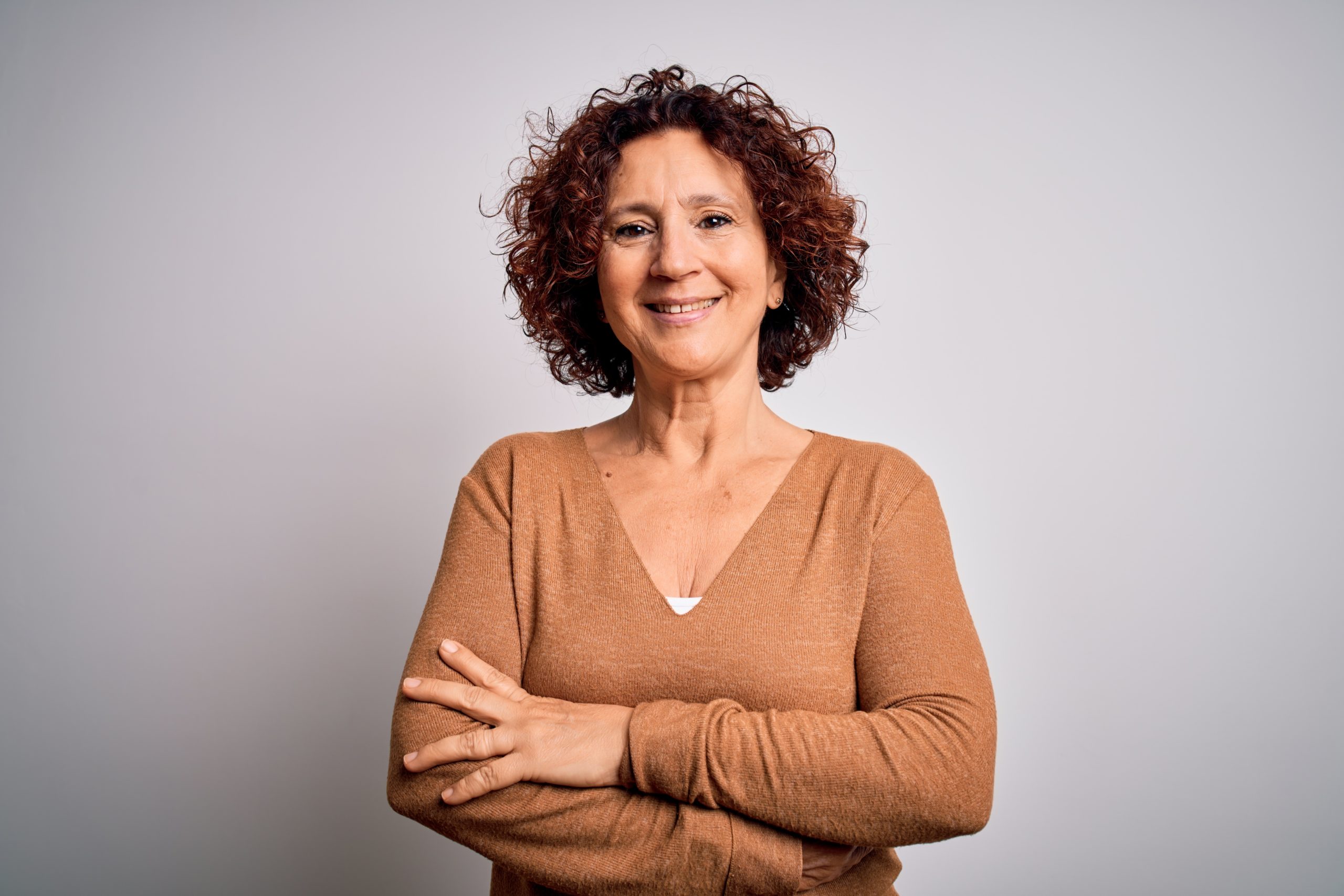
Tell us about how you received your bladder cancer diagnosis?
My doctor finally referred me to the Urology dept at the local hospital. It took 2 years for the hospital to triage me, but once they did, I was scheduled for a rigid cystoscopy almost immediately. On the day of the scope, my Urologist took me aside to let me know they had found a cancer marker in my cytology test. Two weeks later, I received the news that I had NIBC and they’d be starting me on BCG. I cried for the next 24 hours and then was able to pick myself up and face the truth.
Tell us about your feelings and emotions at the time when you received your bladder cancer diagnosis?
I had never done any of the things normally associated with BC (smoking, being around chemicals) and had never heard of BC. My diagnosis shattered my world for a few days, but after I had time to come to terms with my new reality, I set out to discover ways that I could turn my tragedy into something that might benefit others.
Tell us about your experience with bladder cancer treatment?
My first round of BCG was a disaster. I only got through one treatment and had such a bad reaction that I spent 3 days in hospital. My local urology team referred me to a major city hospital for a review with a RC in mind. This news was more shattering than the initial diagnosis and it took me several days to overcome my sense of loss and grief. When I eventually got an appointment with the uro-oncologist, he let me know that RCs were not a preference for patients with NMIBC and that he wanted to re-try BCG at half strength. After another rigid cystoscopy and bladder irrigation, it became apparent that I had a highly overactive bladder. I was referred to a pelvic floor physio who gave me some exercises the relax my bladder and also put me on a restricted diet, eliminating anything that might irritate my bladder. Once I restarted BCG, I was in a much better place and with the help of Endone, Targin and Oxybutynin, I was able to tolerate the full six-week BCG round. I’m not just waiting for things to settle down before the next scope, to tee if the BCG has worked.
What advice would you give to others who may be newly diagnosed with bladder cancer?
Find as many ways as you can to turn your focus onto other people and things outside of yourself, An inward focus turns you into a victim and coping with the pain and anxiety is difficult. An outward focus helps pass the time, keeps you focus off the pain and give you the opportunity to be “in charge” of your situation rather than it being in charge of you.
Have you reached out to other bladder cancer patients or been part of a bladder cancer support group?
Yes, I’m a member of multiple BC support groups. I share my story with them regularly. I also share my story and journey with many other FB groups not associated with BC, as part of my BC awareness efforts. The groups I am in follow my progress closely and I share everything with them, including the wins, setbacks and pain.
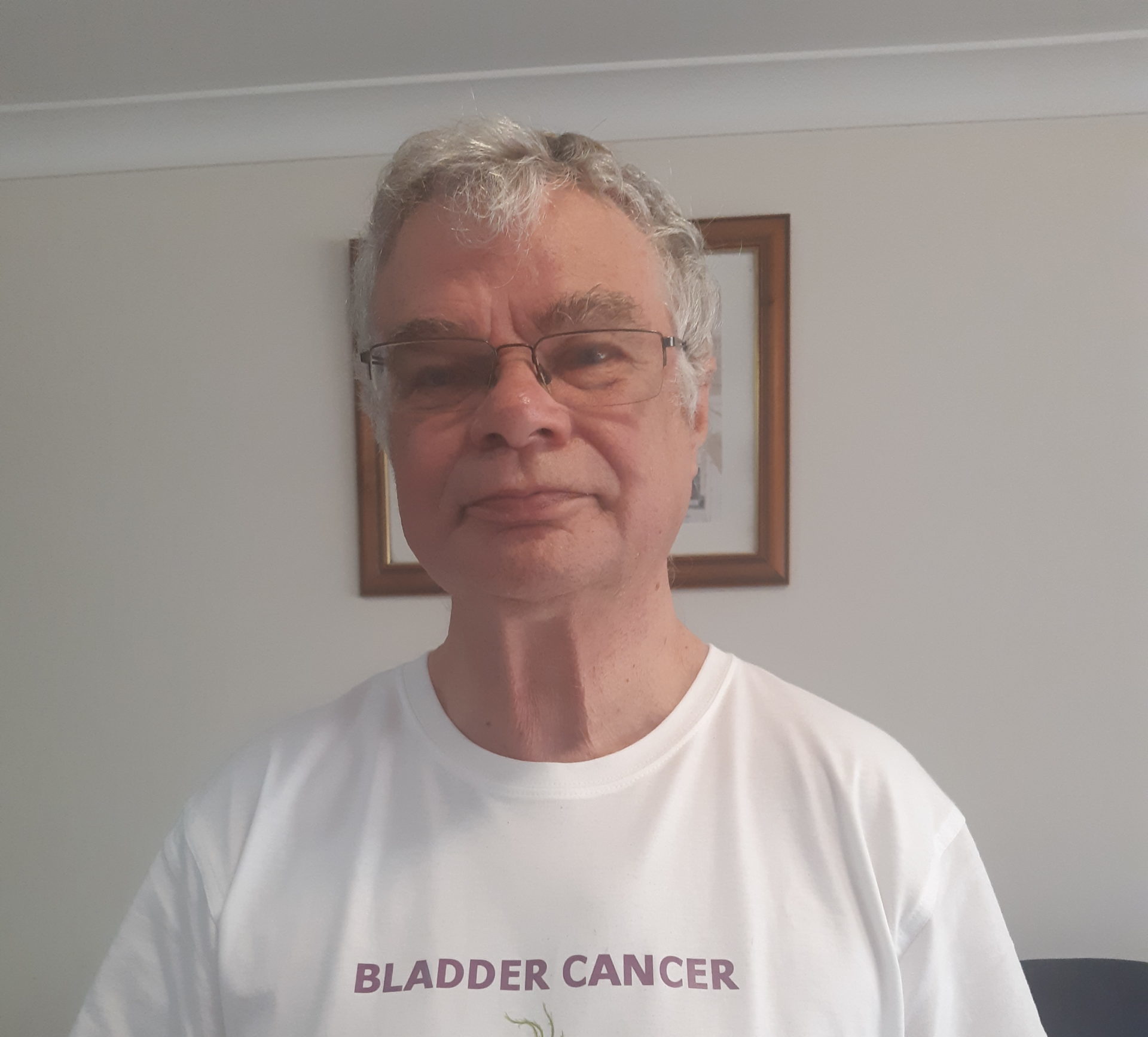
Can you tell us a little bit about yourself and your experience with bladder cancer?
As a Nurse, when I received the diagnosis, I found that I was able to handle the situation relatively well, drawing on my professional experience. However, the news understandably took a toll on my family and friends, causing them considerable distress. Despite this, I had to muster the strength to persevere through it all, especially because I am a single parent to my then 12-year-old son.
Navigating through the challenges, I adopted a “soldier on” mentality, choosing to continue with my daily responsibilities and routines. I maintained my commitment to work, except on the days of surgery.
Tell us about how you received your bladder cancer diagnosis?
It all began when I noticed blood in my urine persisting for almost 12 months. It took some persistence on my part to convince my GP to refer me for tests. A pelvic ultrasound revealed a sizable growth, and this finding was later confirmed through a CT scan. The urgency of the situation led to surgery for the resection of the bladder cancer within a week of the diagnosis, coincidentally taking place the day before my 55th birthday.
Fortunately, I consider myself very lucky to have had valuable connections in the medical field. I received support from a great urologist and an outstanding oncologist, which played a crucial role in my journey.
As for how my life has changed due to my experience with bladder cancer, I’ve always approached life with a mindset of living it to the fullest, as if there’s no tomorrow. However, this journey has given me an even deeper reason to cherish every moment and appreciate the value of life. It’s a perspective that has become even more profound and meaningful for me.
Tell us about the symptoms you have experienced and how you dealt with them?
I am currently on a 12-month clinical trial. Each treatment session poses its challenges, as I contend with bladder spasms, heightened urgency, and increased frequency. These symptoms can be quite demanding both physically and emotionally.
I’ve found it helpful to stay connected with my healthcare team, discussing my experiences, and seeking their guidance on managing the symptoms effectively.
Something quite challenging is explaining these symptoms to my 13-year-old son. As a parent, I’ve been working to find age-appropriate ways to help him understand the changes in my health and the impact they may have on our daily lives.
Tell us about your experience with bladder cancer treatment? How long did it last? Did you experience side effects?
Currently, I’m still in the midst of my treatment journey, and while the prognosis is positive, it often feels like a continuous whirlwind of tests, consultations, and visits to the clinic for treatments and cystoscopies.
The treatment process has presented its own set of challenges. Each session is quite demanding, marked by bladder spasms, heightened urgency, and increased frequency, making it physically and emotionally taxing. These side effects have been a significant aspect of my treatment experience, requiring careful management and support from my healthcare team.
In addition to the challenges related to bladder cancer treatment, I encountered unexpected health issues. I developed abnormal headaches and dizziness, prompting a referral to a neurologist. The diagnosis revealed atypical migraines, for which I am currently on medication. Alongside these, insomnia became another hurdle that I had to navigate.
What advice would you give to others who may be newly diagnosed with bladder cancer?
If someone is newly diagnosed with bladder cancer, my advice would be to maintain a positive mindset throughout the journey. Cancer can present its share of challenges, but cultivating a positive outlook can play a significant role in coping with the ups and downs.
Trust your instincts and advocate for yourself. If you ever feel that something isn’t right or have concerns about your treatment, don’t hesitate to speak up.
Remember that you’re not alone in this journey, and seeking support from friends, family, or support groups can make a significant difference. Connecting with others who have faced similar challenges can provide insights, comfort, and a sense of community.
What is the most helpful thing someone can do for themselves today, if they are newly diagnosed?
If someone has recently received a diagnosis, one of the most helpful things they can do for themselves is to take the time to process and absorb what is happening. It’s completely normal to feel a range of emotions, and allowing oneself the space to navigate through these feelings is an important part of the healing process.
In addition to personal reflection, seeking support is crucial. Don’t hesitate to lean on friends, family, or even support groups who can provide understanding, empathy, and valuable perspectives. Accepting the offers of help from those around you can make a significant difference in easing the burden that often comes with a new diagnosis.
I realise that I may not have fully embraced the support available to me. It’s okay to lean on others, and it can be a source of strength during challenging times.
Have you reached out to other bladder cancer patients or been part of a bladder cancer support group?
While I haven’t joined a formal bladder cancer support group, I did take a step towards connecting with others who share a similar journey by joining a Facebook group.
I participated in the bladder cancer walk in Sydney in May, accompanied by 12 of my family and friends, which turned out to be a wonderful experience. It provided an opportunity to meet some genuinely lovely people and share stories and support.
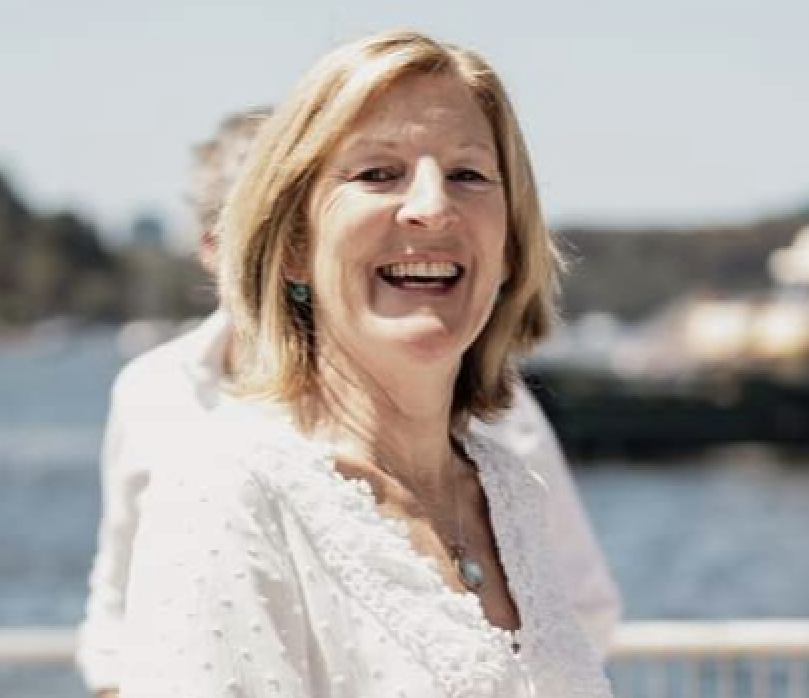
It has been a long journey. I completed my bladder removal in March 2022, and am still recuperating. Getting stronger every day but I’m not rushing myself. I am good with the ostomy bag but am trying to fix a hole in my incision and where a drainage tube was. It has been a struggle but I am doing my best. I also have breast cancer and have to get a new lump checked out. Pray for me.
You have to maintain positivity every single day. You can’t let yourself get down and depressed. Stay strong!
What advice would you give to others who may be newly diagnosed with bladder cancer?
Get a second opinion and your insurance should cover it. Make sure you know every option available before you have surgery. I postponed it for a month while I got my mind wrapped around it.

It was traumatic at first but when I realized the tumour had to be removed I remained calm and looked forward to surgery and treatment. My wife and daughter helped me cope with bladder cancer.
I never felt any pain or discomfort, then one day I urinated blood and clots. I was in shock, I thought it was something I ate. The bleeding continued throughout the day. The next morning I went to the emergency and they detected a mass in my bladder. Two days later I had a cystoscopy.
What advice would you give to others who may be newly diagnosed with bladder cancer?
As soon as you notice blood in your urine, head to the emergency, the sooner it is diagnosed, the easier it will be to treat.
This stock image is provided for illustration purposes.
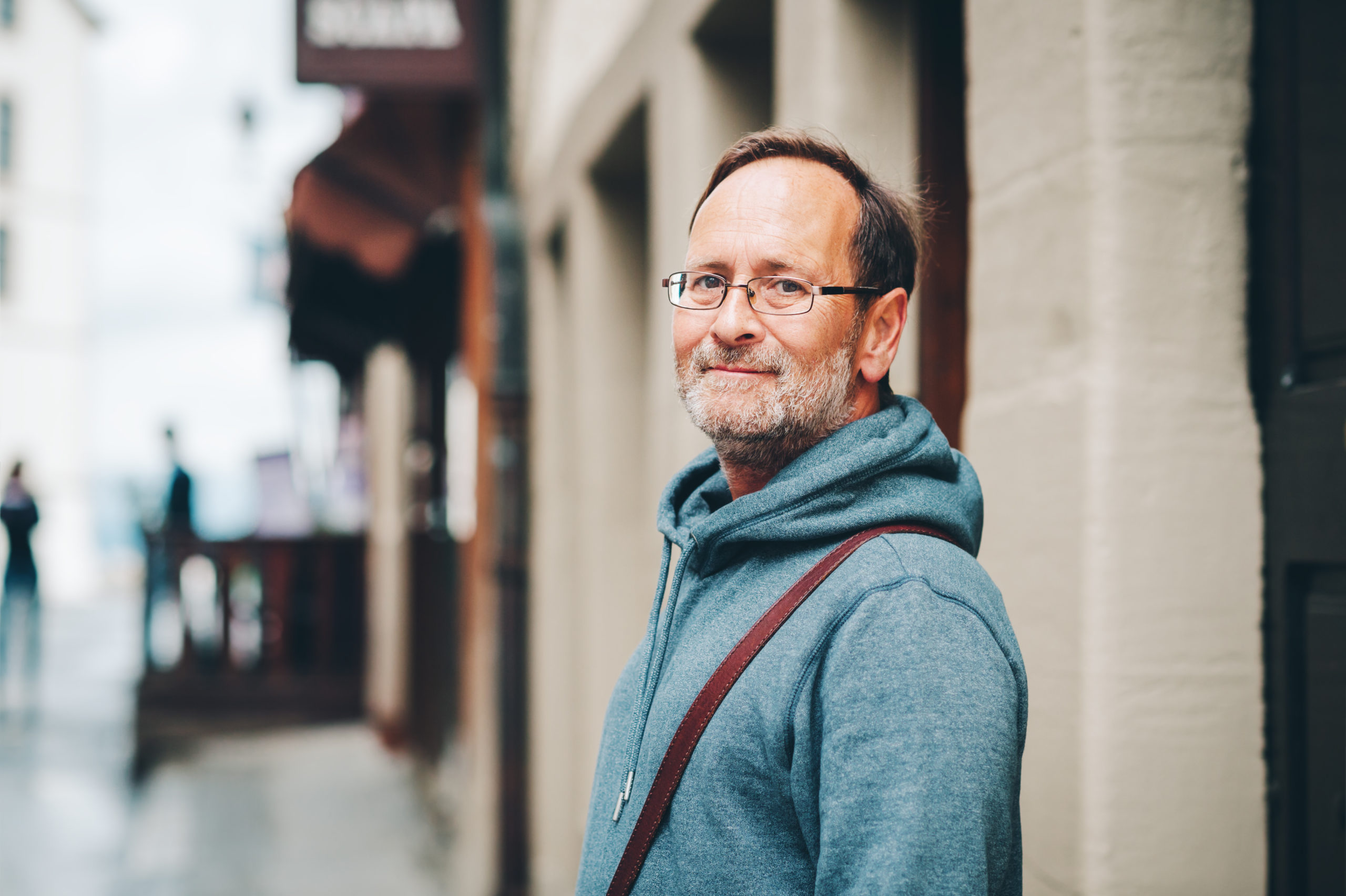
I was diagnosed with bladder cancer when I was 38. I had been experiencing urgency and blood in my urine for 10 months. I’m a mum of two young boys and being told I had cancer was devastating.
At the time, I was alone when I was told I had cancer due to covid restrictions. I was unable to have any face to face appointments prior to my diagnosis. I was having a cystoscopy and was told there and then that it was cancer.
What advice would you give to others who may be newly diagnosed with bladder cancer?
Be kind to yourself. Whichever way you feel is ok. None of us knows how we will feel when we are told we have cancer. The support I had from my family and friends kept me going, I will be forever grateful for that.
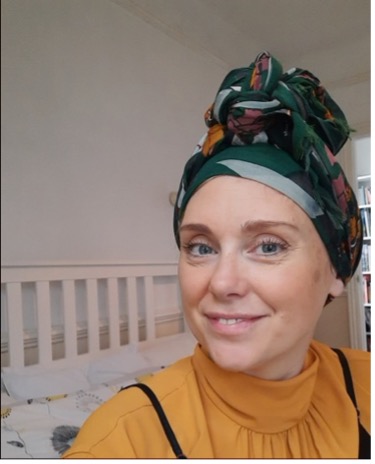
Had a suspected UI and after a few GP visits (and antibiotics) the problems continued to develop and I was then asked to do tests for STIs, even though I was still showing signs of an infection in the bladder. The pain got worse and I started to develop abdominal and back pain so went to A&E where they suspected I had a kidney stone in my bladder that needed moving. After an ultrasound and a couple of CT scans I was told there was a lump in my bladder and I was being emitted for an operation to remove it. About 10 days after my operation I was given the diagnosis of state 2 non-invasive bladder cancer.
Which symptoms have you experienced and how have you dealt with them?
Physically I struggled to fully hold urine after my operation but am much better now, it took me a few months after the hospital to not pass blood if I held urine in (due to work meetings etc), it took a while for me to be able to sit down for long periods without pain or discomfort when urinating. Mentally, I have really struggled. I’ve found it incredibly difficult to meet people of a similar age who have gone through it, I have felt very low and struggled with feelings of isolation and loneliness due to what happened and that it happened during covid, so I was on my own throughout, etc.
Tell us about your experience with bladder cancer treatment? How long did it last? Did you experience side effects?
Within 4 days of going into A&E I had my op to remove the tumour. I was discharged and then back in A&E 2 hours later in agony due to pain. I was under a lot of stress and it upset my asthma and gastric health. No other additional side effects other than what was mentioned above.
What advice would you give to others who may be newly diagnosed with bladder cancer?
Allow yourself time to acknowledge what’s happening to you, explore how it makes you feel, and allow yourself to have bad days. That asking for help doesn’t make you any less ‘strong’. Normalise bodies too, bladders shouldn’t be embarrassing topics, and you shouldn’t feel ashamed or embarrassed about anything that is or has happened to you.
Have you reached out to other bladder cancer patients or been part of a bladder cancer support group?
Yes, I go to a bladder cancer group in my nearest city every 3 months. They are great and have been helpful in giving me advice and peer support.
This stock image is provided for illustration purposes.
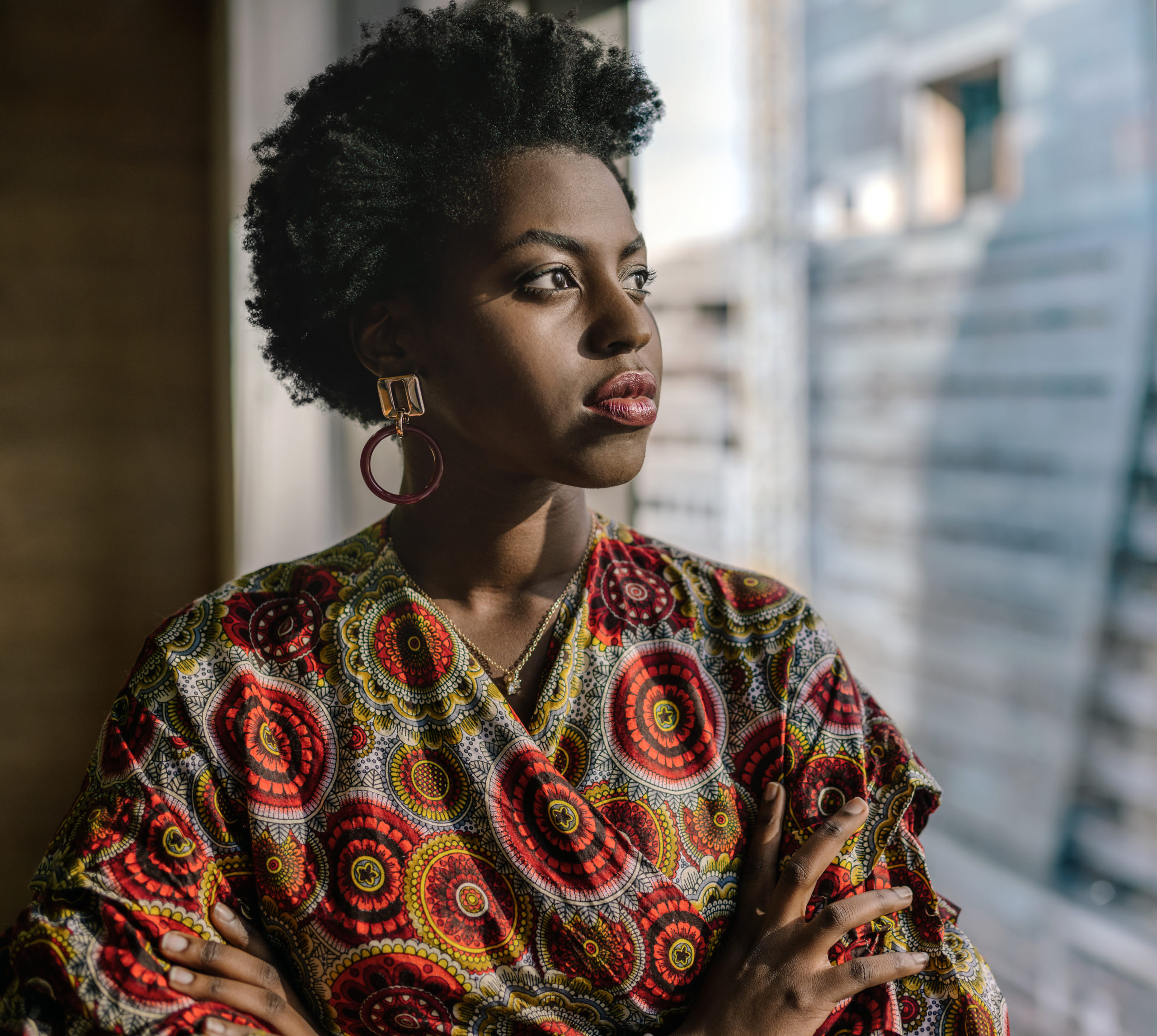
In July 2021, I had a UTI, and my GP gave me the usual dose of antibiotics; however, I still had pain in my lower tummy and back, plus when I went for a wee. After five sets of antibiotics, my GP finally sent me for an ultrasound. The ultrasound showed a polyp in my womb. They also looked at my bladder, but they could not see anything on the ultrasound. This was August 2021, so I went for a failed treatment to get a biopsy from my womb, which was very painful, but it may have saved my life as the tumour in the bladder started to bleed. I was shocked by the blood and back on the phone to the doctors but was told this was the polyp. I told them that it was in my pee. I was booked in for the polyp to be removed under general anaesthetic; however, I was already in A&E before the operation.
I remember it was the 4th of October, and I was bleeding so heavily that I thought something in my bladder had burst. The accident and emergency doctor was excellent, and I guess he did save my life. He sent the sample off, and in 48 hours, my doctor called and referred me to a bladder specialist. He even said, ‘it was a good job you kept on’. I will never forget the 26th of October when I saw the tumour. I had to go alone, and I just cried in the car afterwards. I was in shock. Everything moved very quickly, with CT scans, blood-test etc. And then there was the cancellation of our fantastic holiday after two years to Barbados, again. My TURBT was booked for the 16th of November. I was back in the hospital only a couple of weeks after the polyp was removed. They removed a 2cm tumour, aggressive and ready for a fight. I recovered quickly and felt fine. I got home to see my discharge notes say, ‘Secondary metastasis cancer’. Cancer had not even been mentioned, and I was in shock. I called my doctor the next day, and he told me, “Don’t worry”, but of course, I was worried like hell. I was sure I was going to die! Dr Google told me that! My cancer spread straight away.
On December, my husband and I went to see a nurse; everyone kept telling me that nurses don’t give bad news. But I was told I had muscle-invasive bladder cancer, which had already spread. I cried for two days. All very small but still secondary cancer. Something you can only hope will stay stable. I went from having a polyp to advanced bladder cancer in 1 month. I started my chemo journey in January 2022. My oncologist is fantastic, and I love him; he is so positive even when I am not. After a heart scan, I had my first cycle, and it was hard. The first session was eight hours, followed by a 2-hour session for one cycle a week later. Eight hours of chemo is hard, and I was floored, but I got up every day, showered and sorted myself out. Maybe a few naps. I had my next session in February 2022, so the break lets me feel a bit more human. Everything tasted terrible, I had a bad cough, and my back was hurting, but all that seems to have passed now after some antibiotics, and now my doctor rings me almost weekly. I also got terrible indigestion, which again some miracle tablets sorted out. I must make sure I take the meds on time, and my husband is doing his best with a busy job to cook for me and clean.
I have amazing friends and support with my husband and adult daughter nearby. I have my down days as it is hard for me as a fitness instructor. My last fitness class was in December 2021, and now it takes me a while to walk up the stairs, but I am getting into a pattern of going for a walk every morning and doing some easy Pilates for my back. am scared, but I am a fighter, so watch this space!
What advice would you give to others who may be newly diagnosed with bladder cancer?
Do not rely on Dr Google – look for credible sources of information (for example a patient organisation).
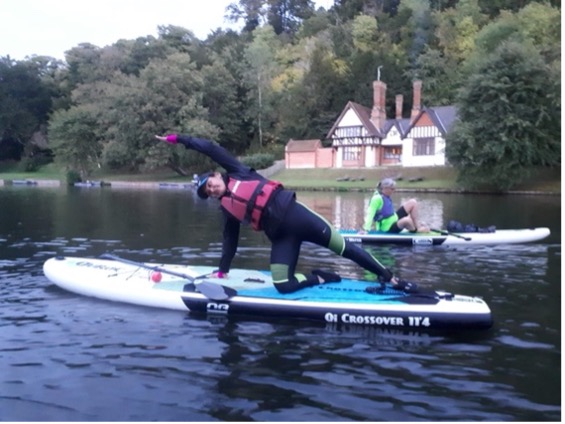
I was having UTI symptoms when I started seeing blood in my urine I was seeking out doctors and answers. I kept getting told I had a UTI and was given antibiotics. In less than a year I went from symptoms to having a stage 4 tumor removed.
I was misdiagnosed more than once. When I finally got a cancer diagnosis the cancer institute did not want me to start chemo because I didn’t have insurance.
What advice would you give to others who may be newly diagnosed with bladder cancer?
Get as many second opinions as necessary and don’t stop until you are heard. You are your own best advocate
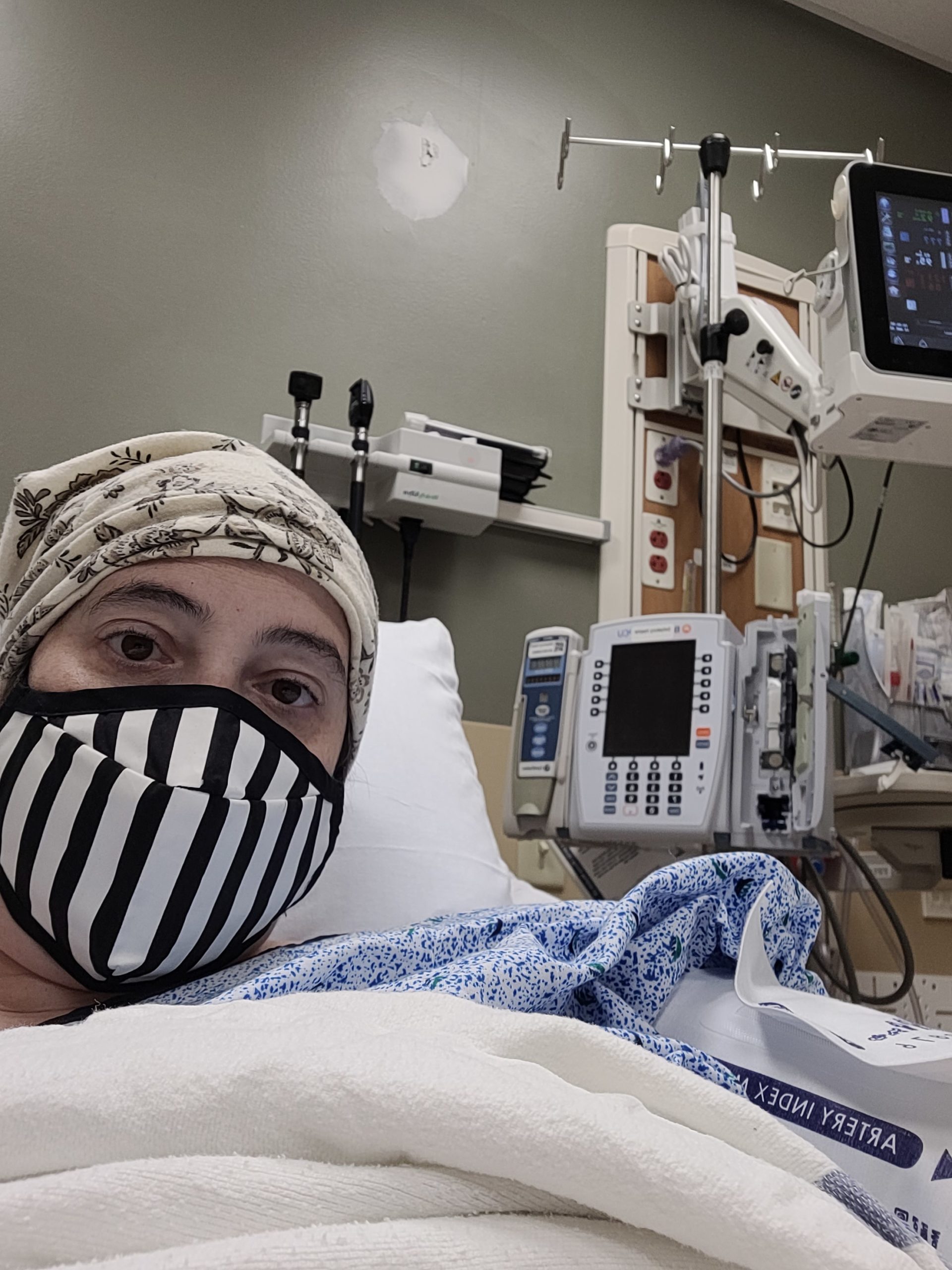
Tell us about how you received your bladder cancer diagnosis?
In 2020 I couldn’t get an outpatient CT to rule out kidney stones due to COVID19. I was given antibiotics for possible UTI even though the culture was negative. 2021 I had a recurrence and got a CT scan which found a mass in my left ureter tube and hydronephrosis in my left kidney. I went to see a urologist and had a cystoscopy with a biopsy of the mass. I was diagnosed with high-grade Urothelial Cancer. I was upset that in 2020 I had been refused medical care due to COVID-19 being too dangerous in the meantime, I had a very aggressive form of cancer. I had seen 9 urologists for 25 years, and no one ever said the words bladder cancer. Once I had a diagnosis, I read that all the symptoms I had were potential symptoms of bladder cancer. All my doctors told me not to worry, “some people just have hematuria” I think one of them should have told me to get an annual cystoscopy and CT scan. I do annual mammograms because of my family history, and since I was 40, I would have been diligent if I had known to pursue these tests regularly. For others, I would say if you are having symptoms pursue research, regular testing and if your doctors aren’t concerned, find another doctor.
What life changes have you made since diagnosis?
I work less. I had 3 jobs and now have 1. Work used to be the priority for me but I recognized I no longer have decades to enjoy life and relationships. I don’t wait to make plans or say “We should do…” I set a date and then do it. I don’t work out like I used to which I miss but I’ve started doing active adventures with friends like hiking, kayaking, and paddle boarding. I tell my friends and family all the time how much I love them and what they mean to me. I started attending church and my faith has become much stronger. I’ve found great comfort in my relationship with God. This is a very lonely disease and with that relationship, I never feel alone.
Tell us about your experience with bladder cancer treatment?
My first surgery was to remove the tumour from the Ureter tube and resection it to the bladder. That was pretty easy 2 or 3 weeks of recovery and then surveillance every 3 months. My first cystoscopy found a tumour in my bladder. I did a TURBT and then another one to stage it, and it was stage 2 muscle invasive. I did 3 months of Cisplatin & Gemzar chemo which was very difficult. I lost my hair in 2 weeks. I was nauseous, vomiting, fatigued, metallic taste, etc. If it was a side effect I had it. Also, the cumulative effect was that by the end of it I was down 25 lbs and could barely function but thankfully the recovery from Cisplatin was about 4 weeks. Once I had time to recover, I had a radical cystectomy, a total hysterectomy, and an appendectomy. During the surgery, they found the cancer had been in the lining of my bladder what had looked like a thickening of the bladder wall was actually a tumour. So it was in my pelvic and vaginal walls. I had to have a partial vaginectomy. That was maybe 4 weeks to get to feeling better and then 8 weeks to totally recover. I had opted to have an ileal conduit for urinary diversion, which is much easier to recover from and has fewer complications. It took a few months to get the hang of the urostomy bag and stoma cate but it’s been fine. I do everything I want to do. It is more of a body image issue I struggle with at times. Since the cancer had spread to my uterus and appendix I was stage 4. I started immunotherapy a few months after surgery. It was going well until 3 months in. I got really severe Colitis and had to stop immunotherapy. When they did a CT scan to confirm Colitis it showed metastatic disease in my pelvis and lymphnodes. So once I recovered from Colitis I started a new chemo Padcev. I’ve been on that since December 2022. I had a really bad reaction on the 2nd week of the schedule, so the changed the schedule to every 2 weeks vs weekly. I still get a range of side effects (skin changes, nausea, vomiting, and fatigue are the main ones), but after about 3 or 4 days, I feel okay. My first PET scan was at the end of April for this new chemo and it showed a total response!! I am currently no evidence of disease!! I’ll stay on this chemo long term until I can’t tolerate it or progress but feel so blessed that I had such a positive response after so many previous poor outcomes.
What advice would you give to others who may be newly diagnosed with bladder cancer?
There is hope, there is treatment and there are cures. Use the resources available at your cancer centre for education, financial assistance, support groups, etc. Read the sites and literature your doctors give you. Steer clear of promises of cures that you can order online. Ask your friends and family for help. People don’t know what to do but want to do something so be specific. I’ve had meal trains, transportation, a house cleaning day, etc. Move!! It is so hard but it helps fatigue and depression. Cry when you feel like it but don’t forget to laugh too. Do things, love your people and let them love you, and find gratitude.
Have you reached out to other bladder cancer patients or been part of a bladder cancer support group?
Yes, I have reached out to several bladder cancer patients and people with Ostomy and Urostomy that I’ve seen on social media to ask about their experiences. Everyone has been very generous with their time and responding. I’ve not been able to attend support groups because I work full-time and they meet during work hours.
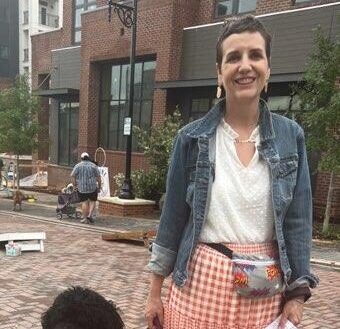
Tell us about the symptoms you have experienced and how you dealt with them?
I experienced a little blood in my urine, and I did notice a strange smell which I now know could have been my body telling me something was wrong, and no other symptoms. My urine and blood tests all came back negative.
Tell us about how you received your bladder cancer diagnosis?
I had a CT scan in 2021 and was booked in for a bladder cystoscopy, but when I arrived, I was told they noticed from my scan 2 tumours on my bladder. The Consultant was abrupt and showed me on the screen tumours and said you have Cancer. It was not delivered in a sympathetic way, and I was on my own. The 2 nurses in the room appeared to be shocked, and the younger nurse who walked me out was visibly upset, I think because of how it was delivered to me. I would like to say that since then, the Oncology team have been brilliant.
Tell us about your feelings and emotions at the time when you received your bladder cancer diagnosis?
I went into auto pilot, focussing on what are my next steps in terms of removing the Tumours. I kept in constant contact with the Oncology department and made notes of those discussions so I knew exactly what was going to be done to remove the Tumours; this kept me focussed, and I felt a little bit more in control even though it was the Oncologist team doing all the scheduling of treatments. I also did my research and looked at how I could improve on what was an already healthy lifestyle (I ate healthily and exercised regularly). I looked at the foods which are reported to help fight Cancer and incorporated them immediately into my diet whilst eliminating those foods which are not so good. I started making juices with cancer-fighting properties. I joined a local Yoga group which I can honestly say has been an absolute godsend. I increased my meditation time and daily exercise and now have acupuncture once or twice a month to help support my immune and excretory systems. I removed all negative thoughts and focussed on my own health and doing things which uplifted me and helped support my own journey. I limited the number of people I told until I knew exactly what the treatment would be. I did join some online groups but found them to be draining and not inspiring, or at least not for me; they do help many people but are just not suited to my own needs. I am a reflexologist, so I have an open mind about Holistic therapies and believe they can work alongside allopathic (traditional medicine). I have always been a positive person, so my focus was to take each Month a stage at a time and concentrate on my treatment for that Month and taking care of my body and mind. I also listened to Sleep Healing Meditation.
What life changes have you made since diagnosis?
I incorporate more cruciferous vegetables and juice veg rather than fruits as fruits have much higher sugar content after juicing. I started fasting, which meant I ate around 10 am and had my last meal before 5 pm, this really helped me feel I had some control over my own health and gave me a daily focus. I said no, to things which did not support my health journey, alcohol was one of them (I did not drink much anyway but thought I would remove it for a year following my diagnosis. I eat vegetables mostly with the occasional Organic fish and Chicken (I have never been a red meat eater), so this was easy to avoid. I tried to avoid sugar which is not that easy, but I tried. This may sound a little harsh, but I distanced myself from negative people in my life and only spent time with those who I knew had an uplifting spirit. I continued with my normal life as I was lucky to be semi-retired, so had lots of spare time to focus on my health, I started doing Reflexology on myself to support my bladder and immune system.
Tell us about your experience with bladder cancer treatment?
My treatments started in October 2021, removal of two 2cm non-invasive Tumours (TRUBT) non-invasive means they had not penetrated the wall of my bladder (that’s a good thing) and the biopsy all under general aesthetic (stayed in the hospital for 2 nights until I stopped passing blood in my urine and the catheter was removed) I was very tired after the treatment and rested for 2 weeks with gentle exercise (I drank only water and ate healthily) I also had a full CT Scan to see if cancer had metastasised and fortunately it was all clear. They removed the Tumours but the biopsy was inconclusive so I need to wait another 8 weeks for the bladder to heal and then under general aesthetics have another biopsy, this came back after 2 weeks with PT1 Stage 3 cancer (fast-growing which I now know most bladder cancers are) I was then booked in January 2022 to have a course of immunotherapy (every Tuesday for 6 weeks) it is called BCG and is a strain of childhood injection for tuberculosis and is proven to help bladder cancers. The injections were given via the urethra and were painless for me (I drink so much water that I believe this helped). I waited another 10/12 weeks for another bladder cystoscopy (May 2022) which showed 10 very small tumours (the others had not returned) it was a little frightening, but again I kept focussed. I had another TRUBT under general aesthetic but this time, the recovery was very quick and I was out the same day. Also, the tumours were classed as superficial (PTa Grade 3) I waited 8 weeks for the bladder to heal then another round of GBC was booked for June 2022 this time it was only 3 sessions once a week for 3 weeks, making a total of 9 sessions of BCG since being diagnosed. Once again all very painless. Another full CT scan in September 2022 which was all clear. October 2022, another Flexi Cystoscopy showed two very small tumours between 1-2mm in size and once again non-invasive and no sign of previous tumours returning. I waited 10 weeks and was booked in on 13th December 2022 for a Cystoscopy with Laser which is called TULA, this was fantastic, no aesthetic was needed and the laser removed the 2 small tumours with no adverse reactions and the procedure took 10mins (it was amazing) but I know that some health authorities don’t have this Laser. I am not sure if the Laser would work on my initial Tumours but my advice would be to ask your Oncology team if the Laser (TULA) is an option for you. I waited for my bladder to heal and on 14th February I started another 3 sessions of BCG over 3 weeks making a total of 12 sessions since being diagnosed. I waited for my bladder to heal, and on March 28th 2023, I had a Flexi Cystoscopy with Laser (TULA). The laser was not required as my bladder was showing no sign of any tumours, the relief of hearing those words everything is all clear, was made me cry. Even though I had a clear scan they are continuing with BCG and I will need another 9 in slots of 3 sessions over the coming year, and also Flexi Cystoscopy and CT Scans, I see this as positive as I am in the system and being monitored. For the moment, I am all clear, my next Flexi cystoscopy is on Sunday, 18th June 2023 fingers crossed it also shows I am clear. I am feeling really good so I take this as a sign my body is healing. I would also mention that I am not on other medicines of any kind, not even HRT, so for a cancer patient, that is a good thing. Points to note: Don’t be afraid to ask questions to the Oncology team as to the best treatment for you and if Laser would be suitable. Drinking plenty of water really helps, in particular the lead-up and also after, to stop any infections, water is your saviour keep drinking it. You will be asked to provide a urine sample before BCG and Cystoscopy, as they check this before the treatment. I did my sample at home and took it with me as it took a bit of the pressure off trying to do it at the Hospital and I only live 20 mins away I had no adverse reactions after any of my BCG treatments, but some people do (flu-like symptoms and are in bed for a few days or they may get a UTI) Please listen to how your body is and not how others have reacted to the treatment, sometimes we can over think and that places our body in to stress mode and that is not helpful.
What advice would you give to others who may be newly diagnosed with bladder cancer?
Take notes when speaking with the Oncologist team, if you don’t understand the words they use or the process you need to go through then keep asking them to explain. Always ask when you can expect a callback or when your next follow-up is, if they say someone will contact you in 6 weeks make a note of this and if they don’t then chase up and ask. Find out exactly what type of Caner you have and at what stage, the more you understand about this disease the better. Bladder cancer is treatable and people are living 15 / 20 years after BCG, so please keep thinking that you are one of those people. Look at your food intake, and what are the best foods for helping Cancer, keeping active and doing the things you enjoy is key. You may like to join a Facebook group but I found it a little bit depressing as lots of emotions are shared, but we are all different so you may like to try it. I found this site one of the best, reading stories I can relate to in a helpful way.
Have you reached out to other bladder cancer patients or been part of a bladder cancer support group?
Facebook Bladder Cancer Community – which I did for a little while then dropped off, but I do dip in and out occasionally. I also joined the Macmillan Cancer Support which I found very sad as I was not at this stage so I dropped off it. Your oncologist team may know of groups in your area which could be of some help but I never needed this.
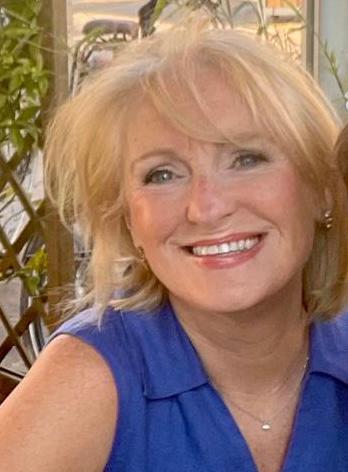
Tell us about the symptoms you have experienced and how you dealt with them?
Initially, I experienced extreme fatigue and symptoms typical of a urinary tract infection, which I attributed to peri-menopause, especially when I noticed blood in my urine. However, the situation escalated around Christmas 2020 when I started urinating bright red blood, and I couldn’t muster the energy to even decorate our tree or home. Although I googled my symptoms and came across bladder cancer as a possibility, I dismissed it, thinking I was too young. The confusion deepened when a clinic, treating me for what was thought to be a UTI, informed me I didn’t actually have one despite my symptoms and bloody urine.
Tell us about how you received your bladder cancer diagnosis?
After turning 52 in January 2021, my symptoms worsened dramatically. Concerned, my fiancé urged me to go to the ER after I screamed in pain trying to get out of bed. We initially suspected kidney stones. Alone in the ER due to COVID-19 precautions, the interactions with the medical staff were brief but became noticeably more compassionate after my CT scan, signaling to me that something serious was wrong. Alone and frightened, a doctor, with tears in his eyes, informed me I had bladder cancer, leaving me in a state of shock, worried about breaking the news to my fiancé and our sixteen-year-old daughter, Kara.
Tell us about your feelings and emotions at the time you received your bladder cancer diagnosis?
The diagnosis left me terrified and uncertain about the severity of the cancer or if it had spread. Motivated by the memory of my daughter losing her father at a young age, I was determined to fight the disease. The emotional toll was heavy, as every conversation about my condition with friends and family ended in tears.
Who was the first person you told about your bladder cancer diagnosis?
The first person I told was my fiancé, Richie. We shared a deeply emotional moment, crying together. We spent the next few days at home, grappling with the news, while my daughter stayed at a friend’s house.
What life changes have you made since diagnosis?
As a lifetime smoker, I’ve made significant strides in quitting smoking. Although I haven’t quit completely, I’ve reduced my intake to no more than three cigarettes a day, with many smoke-free days. I am committed to quitting entirely.
Tell us about your experience with bladder cancer treatment? How long did it last? Did you experience side effects?
A few weeks after my diagnosis, I underwent a TURBT procedure, intended to remove the cancer through outpatient surgery. However, due to extensive bleeding and the presence of significant cancer tissue, the surgery lasted four hours, resulting in a four-day hospital stay. Complications continued at home, leading to an emergency surgery and an eight-day ICU stay. In light of the cancer penetrating the bladder wall, removal of my bladder was deemed necessary. This period was intensely isolating due to COVID-19 restrictions.
What advice would you give to others who may be newly diagnosed with bladder cancer?
For women facing a radical cystectomy, it’s crucial to find a surgeon who is not only skilled but also empathetic and responsive. Discuss pain management and post-operative care extensively, including arrangements for home health and treatment for menopause-related symptoms, as the surgery involves significant alterations, including a hysterectomy. Understand that recovery is a lengthy and challenging process, and adjusting to life with a stoma and bag takes time and emotional resilience.
Have you reached out to other bladder cancer patients or been part of a bladder cancer support group?
I found a valuable support group for women with urostomies a few months post-surgery. This private group on Facebook has been incredibly supportive and helpful, offering a space for shared experiences and advice, which I highly recommend to others in similar situations.
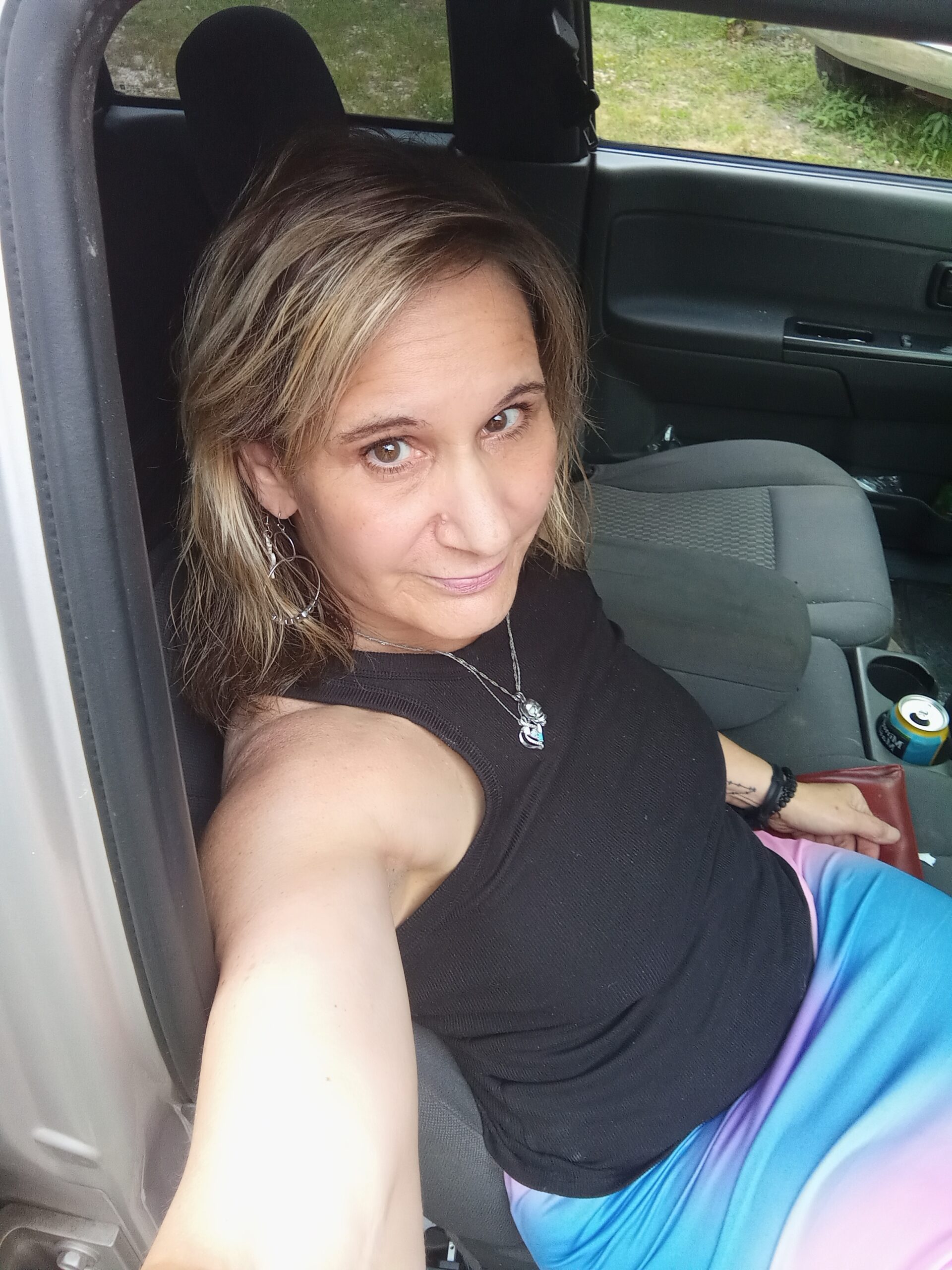
Tell us about how you received your bladder cancer diagnosis?
I received my diagnosis after an Ultrascan and a CT Scan with dye. Then I had an appointment with Urologist Consultant who was quite robotic in his delivery. There was a Cancer Nurse present as well. You are left feeling numb, and going from thinking it was Post Menopausal related to Cancer was scary and made me angry that this had not been looked at. I was diagnosed with high-grade non-invasive bladder cancer.
Tell us about your experience with bladder cancer treatment?
I was being investigated for post menopausal bleeding for 2/3 years so this diagnosis of Bladder Cancer was quite a shock!
I had 3 tumours removed and then 6 weeks of chemo directly into the bladder. The treatment wasn’t so bad to be honest, you have to keep the chemo in the bladder for one hour then wee it out again. Towards the end of treatment, I did start feeling tired. Side effects for one year after were stinging and a constant urge to wee; it was very uncomfortable. I then had a further scare in 2023 which turned out to be benign, thankfully, and my next check-up is July 2023; keeping it all crossed!
Have you reached out to other bladder cancer patients or been part of a bladder cancer support group?
I joined a Facebook Group called Fight Bladder Cancer with out their support I would be lost and afraid. You get lots of information provided upon diagnosis in paper form but you cannot beat talking to people going through this.
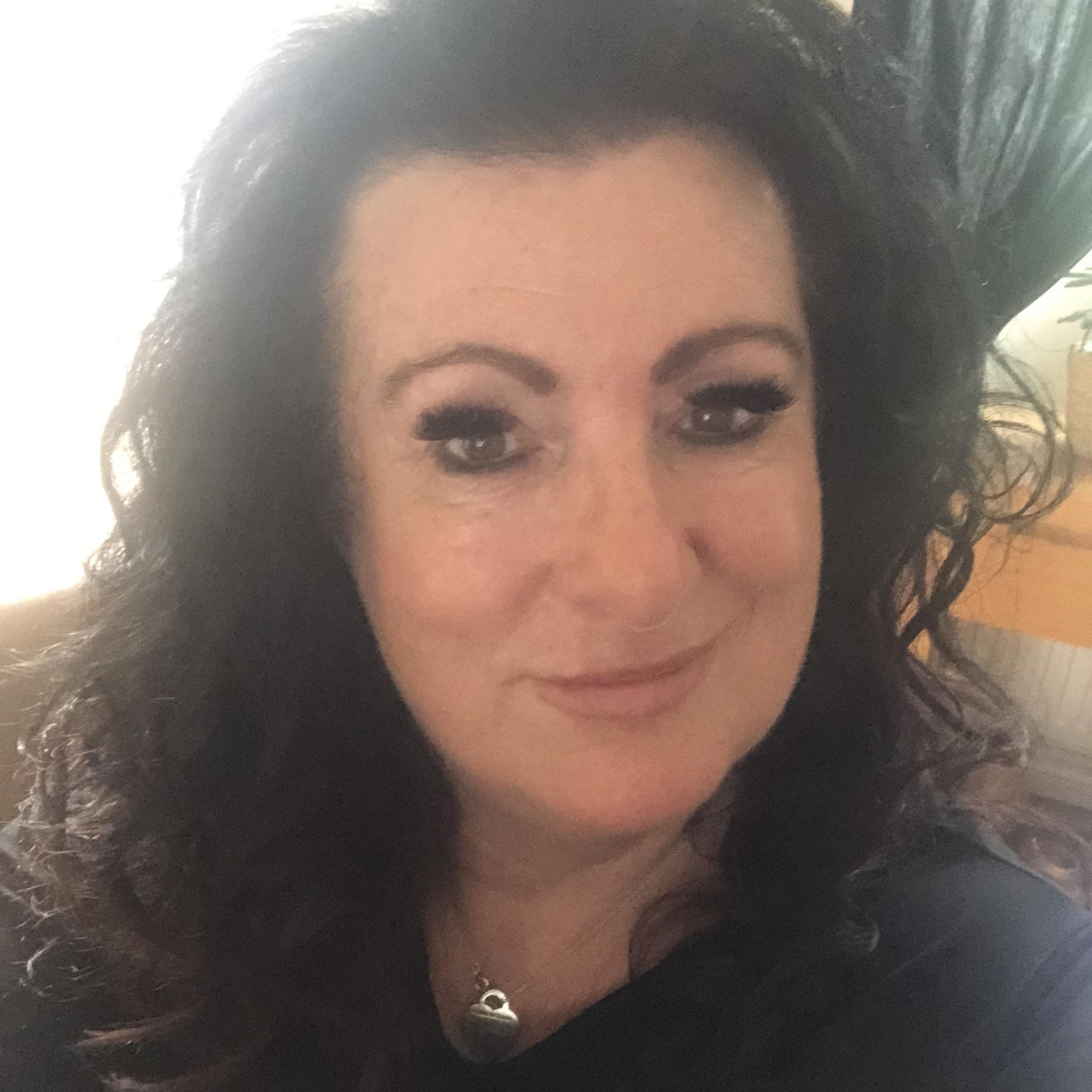
Tell us about how you received your bladder cancer diagnosis?
A mass was noted in my bladder measuring 2cm on my 12-week dating scan during my pregnancy, I had a subsequent cystoscopy where the doctor confirmed the cancer diagnosis. Unfortunately, the doctor I saw had an appalling bedside manner and caused me a great deal of distress as I was alone and 19 weeks pregnant at this point. But the cancer nurses present were beyond wonderful.
Tell us about your feelings and emotions at the time when you received your bladder cancer diagnosis?
I was terrified… beyond terrified. My first thought was for my unborn baby, would any treatment endanger her? Would I get to see her grow up? How would my husband cope without me? But the cancer nurse with me was so wonderful and after ten minutes with her, I was feeling much more hopeful and relaxed. We were even laughing about how no one could say no to me now I was pregnant and had cancer.
What life changes have you made since diagnosis?
I don’t take anything for granted and enjoy the small things a lot more now. Just sitting in the garden watching my daughter play, or enjoying time with her and my husband. Just being happy. If I hadn’t been pregnant we’d probably not have found the cancer for a long time, so naturally my daughter gets anything she asks for!
Tell us about your experience with bladder cancer treatment?
Due to my pregnancy I was unable to have any medical treatment, so my case was discussed at MDT with the obstetricians and it was decided to remove the tumour by rigid cystoscopy. This was done at 23 weeks pregnant under a spinal so safe for the baby. I was told that treatment after my pregnancy wouldn’t be beneficial for me, so I have annual cystoscopies to check for recurrence.
What advice would you give to others who may be newly diagnosed with bladder cancer?
Cancer is a big and very scary word, no matter the stage or type of your cancer any diagnosis is life-changing. Share your diagnosis with your loved ones, let them know how you’re feeling and accept support where offered and needed. Interact with your nurses, no query or question is silly to them, ask them anything and everything. It’s okay to be scared, but you don’t need to be alone.
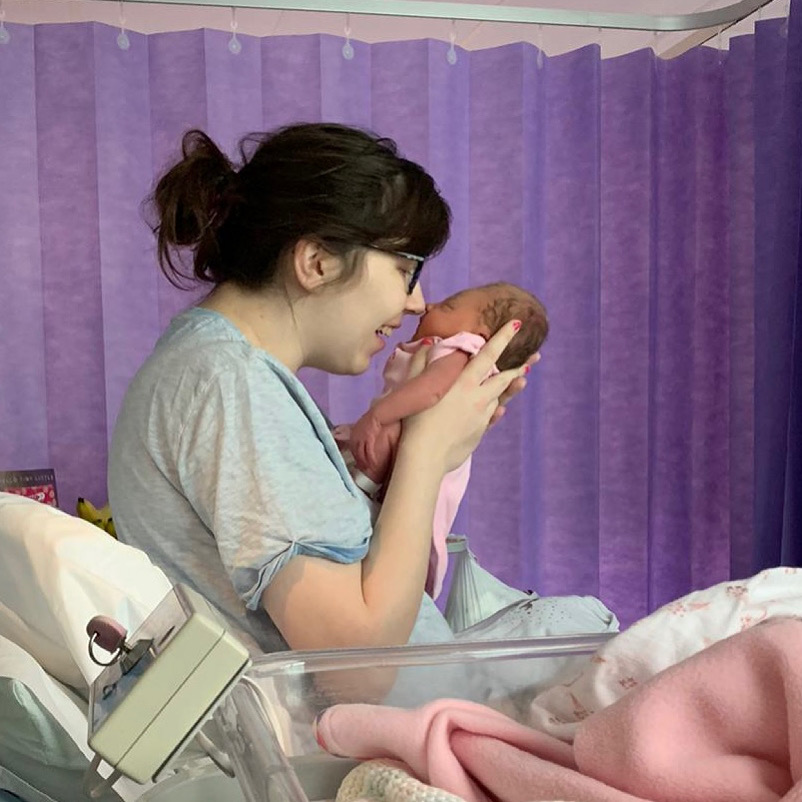
Receiving the diagnosis was a very scary experience for me. I had no signs or symptoms of bladder cancer to begin with. In December 2020, I went to the hospital because of a kidney stone and got diagnosed with bladder cancer, as they found a tumor. The tumor was muscle-invasive at this time, so the doctor started me on Bacillus Calmette-Guerin (BCG) treatment. After my first round of BCG, they had to remove two more tumors, and I then had a second round of BCG during the summer of 2021. In November 2021, I had a clear cystoscopy, followed by maintenance BCG in February 2022. Just in April of the same year, I had another clear cystoscopy. Now, three years since being diagnosed and after completing all my BCG treatments with no recurrence, I consider myself cancer-free. I continue with my twice-a-year check-ups, including a CT scan and cystoscopy.
I had no signs or symptoms of bladder cancer, so needless to say, it caught everyone off-guard. It was also very surprising to get the diagnosis because of no symptoms. The only reason why they found my tumor when they did was because of the CT scan for my kidney stone.
As a family, we all stayed very positive, and I am so grateful for all the support they have given me.
What advice would you give to others who may be newly diagnosed with bladder cancer?
Stay positive, have a good diet, and exercise. That has helped me during my bladder cancer journey.
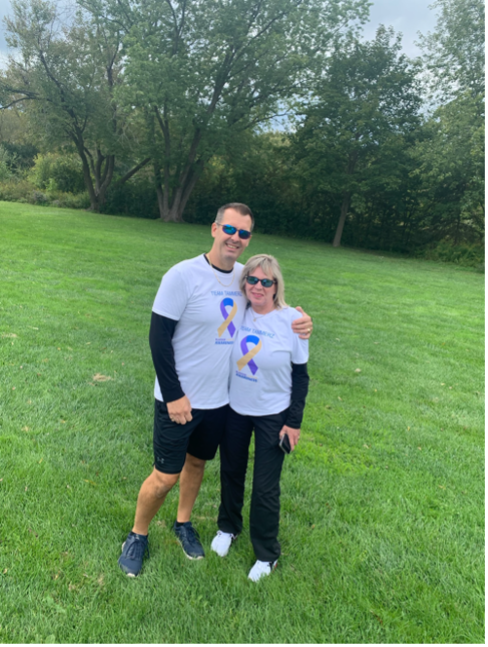
I was diagnosed at the beginning of the Covid-19 pandemic. Not a great time. I went through testing, procedures, and diagnosis alone or via phone. Everything felt extremely unsafe, more than just worrying about Covid as everyone was. Scared but everyone was scared so it wasn’t easy to talk about my troubles. Difficult for my adult daughter as she wasn’t able to come with me.
I was fortunate that I had some blood in my urine. This was post-menopausal so something I thought I should get checked out. I thought that it could be a hormonal issue. I had a pelvic exam, then an ultrasound, then a vaginal ultrasound, then another ultrasound, then sent to a urologist specialist, where I had a CT scan, then MRI, then TURBT, and another CT scan… then I was diagnosed with plasmacytoid bladder cancer which is a rare, aggressive variant. I was transferred to a top urologist surgeon and an oncologist. Started chemotherapy 3 months later (late due to Covid delays in hospitals), which was for 4 months. Then 6 weeks later I had a radical cystectomy, with a urostomy for life.
What advice would you give to others who may be newly diagnosed with bladder cancer?
Talk to others, Who have been through it. I was too isolated. I knew the information but I needed to know more about actually dealing with it. It was harder than I expected. But you do get through it. And it’s okay.
This stock image is provided for illustration purposes.
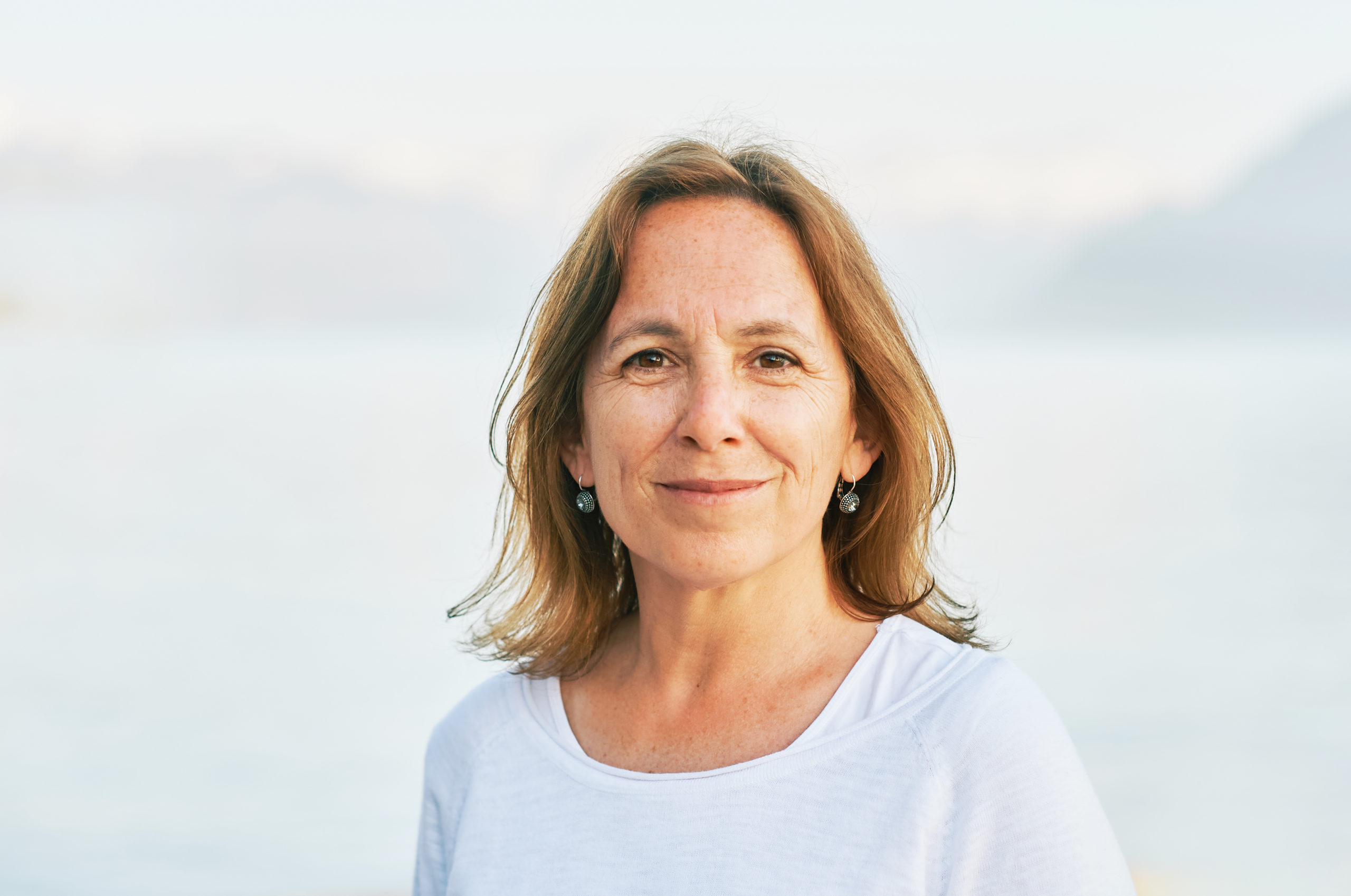
Tell us about the symptoms you have experienced and how you dealt with them?
Back pain, blood clots in urine, fatigue
Tell us about how you received your bladder cancer diagnosis?
I informed my doctor right away when I first started seeing blood in my urine. My doctor treated me for a UTI but the blood in my urine continued and I knew this was something different. My doctor sent me for a cystoscopy and a biopsy was taken. A few weeks later while I was sitting on my deck at work, I received a call from my urologist. Then I heard the words that I knew in my gut were going to be said: “you have bladder cancer”.
Tell us about your feelings and emotions at the time you received your bladder cancer diagnosis?
My first feeling was disbelief even though in my gut I knew I had cancer from the symptoms I was experiencing. I was so in tune with my body that I knew it to be true. But the feeling I got over my body when I heard those words is hard to describe. I had a couple of days of notifying family and having a good cry but then I concentrated on what the next step was. The word cancer flashed in my mind for days. All I could think was “I have cancer”. Over and over that replayed in my mind. Once I had a treatment plan in place, I felt more at ease with my diagnosis. I trusted my urologist and having appointments scheduled helped with my anxiety.
Who was the first person you told about your bladder cancer diagnosis?
My first thought was how do I tell my loving parents that I have cancer. It was hard to share this news. I knew they would be scared. I was scared too but I reassured them that I was ok. I knew that I was strong enough to fight my diagnosis and I did just that with a smile on my face. My parents booked a flight right away to be with me during my journey. I was already strong but I felt stronger with them by my side.
What life changes have you made since diagnosis?
I have really started to pay attention to any changes in my body. I have developed health anxiety since my diagnosis but I continue to work on both my physical and mental health. I make sure I have enough sleep. I eat healthy and make sure that I can still have pizza or burgers too. Every day I work on something that feeds my soul. Usually, that means a walk with my beautiful dog Dexter, baking bread or making a big pot of soup. I understand the importance of getting fresh air and taking deep breaths outside. I have learned how to live in the present and appreciate what I have in front of me.
Tell us about your experience with bladder cancer treatment? How long did it last? Did you experience side effects?
In January 2020, I had my first TURBT followed by 6 weeks of BCG. Throughout this year, I had 3 more TURBT’s and 3 more rounds of BCG. Unfortunately, every cystoscopy would show more tumors. Both carcinoma in situ and papillary tumors. By the end of 2020 my cancer became muscle-invasive. I started 2021 with 12 weeks of chemotherapy followed by a radical cystectomy with ileal conduit. My bladder, uterus, urethra, fallopian tubes and lymph nodes were removed. I now have a urostomy named Peeatrice that I wear loud and proud. 2.5 years later there is no more evidence of disease.
What advice would you give to others who may be newly diagnosed with bladder cancer?
To reach out to friends and family. Do not go through it alone if you have people around you that want to help. If someone wants to make you supper or take care of your chores, let them. A lot of patients don’t want to be a burden but may family members want to do those things. It helps them feel useful and it benefits both parties.
Have you reached out to other bladder cancer patients or been part of a bladder cancer support group?
I lead a women’s support group. It has been so helpful to hear other women’s experiences and to have people who truly understand what I have been and continue to go through. I love hearing feedback from the members on how the support group has made a positive change in their lives. I feel a sense of purpose knowing that I am helping other women with bladder cancer. We have created a community of women that is welcoming and full of knowledge with real-life experiences. When a new member comes to our group, I know there will be a team of women ready to answer all the hard questions. The collective strength is admirable and amazing to be a part of.
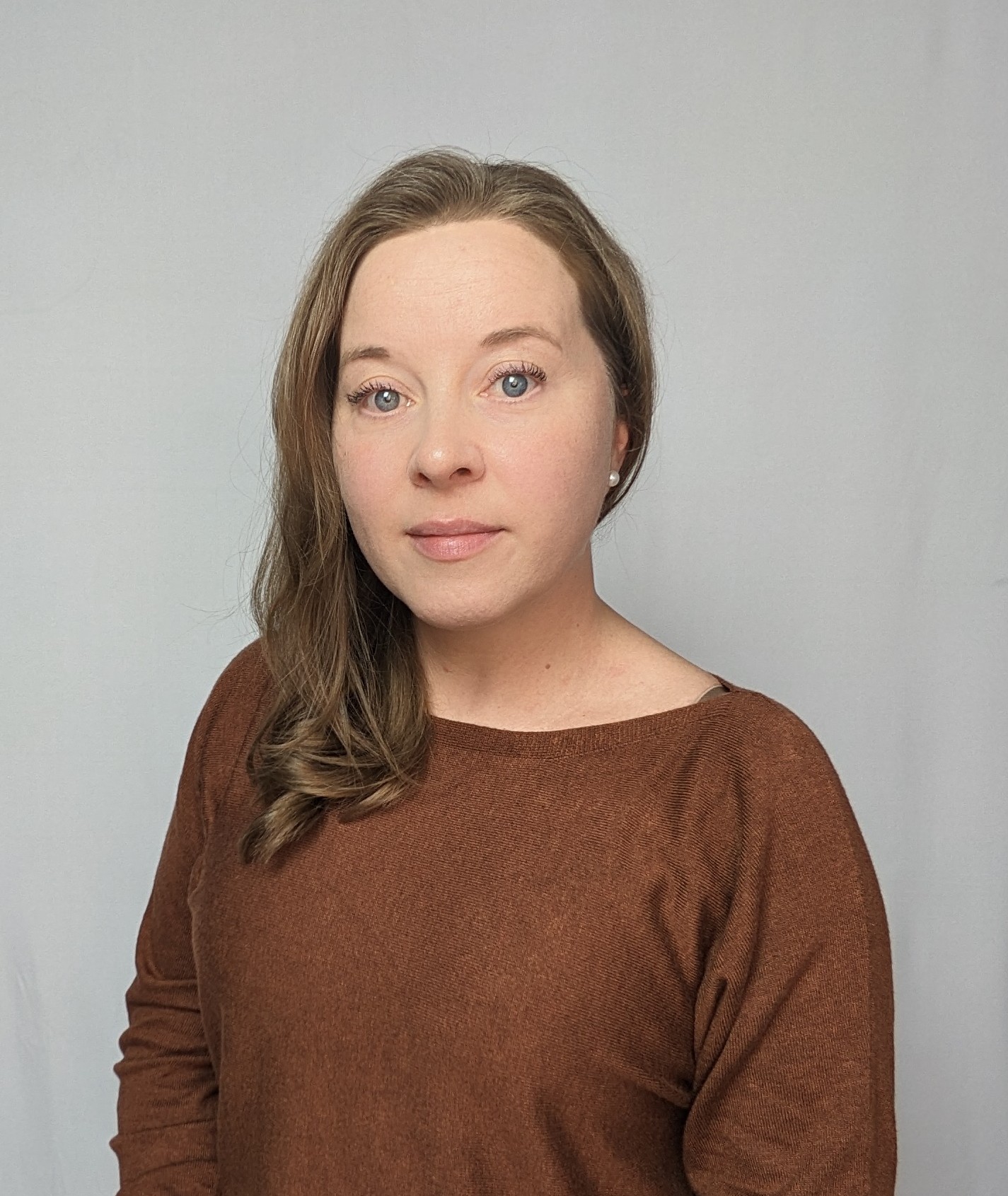
Suffered for months before diagnosis, doctors kept treating me for bladder infections and did not take my symptoms seriously until I started to demand more tests. I knew something was going on inside my body that needed much more attention than another round of antibiotics. I was a new mom, it was hell. Finally got a diagnosis, and had my first turbt. It came back less than 2 years later. Had my second turbt. Currently in Bacillus Calmette-Guerin (BCG)treatment.
I experienced constant bladder cancer infections. Debilitating discomfort to the point I was missing time from work, and family gatherings, it was affecting my ability to be present for my child. Way too many rounds of antibiotics. Blood in the urine. By the time I had my surgery (which ended up being an emergency procedure) my urine had so much blood in it you couldn’t see through the cup. It took way too long for a diagnosis because it’s not ‘statistically common’ for a 27 year old female to develop bladder tumors. I was overlooked and dismissed for an unsettling amount of time. Until I started to not take no for an answer and demanded to be taken seriously.
What advice would you give to others who may be newly diagnosed with bladder cancer?
Access the most suitable treatment for you, and also reevaluate your lifestyle and what you eat, your overall diet. It is important to give more consideration into what you put in and around your body.
This stock image is provided for illustration purposes.
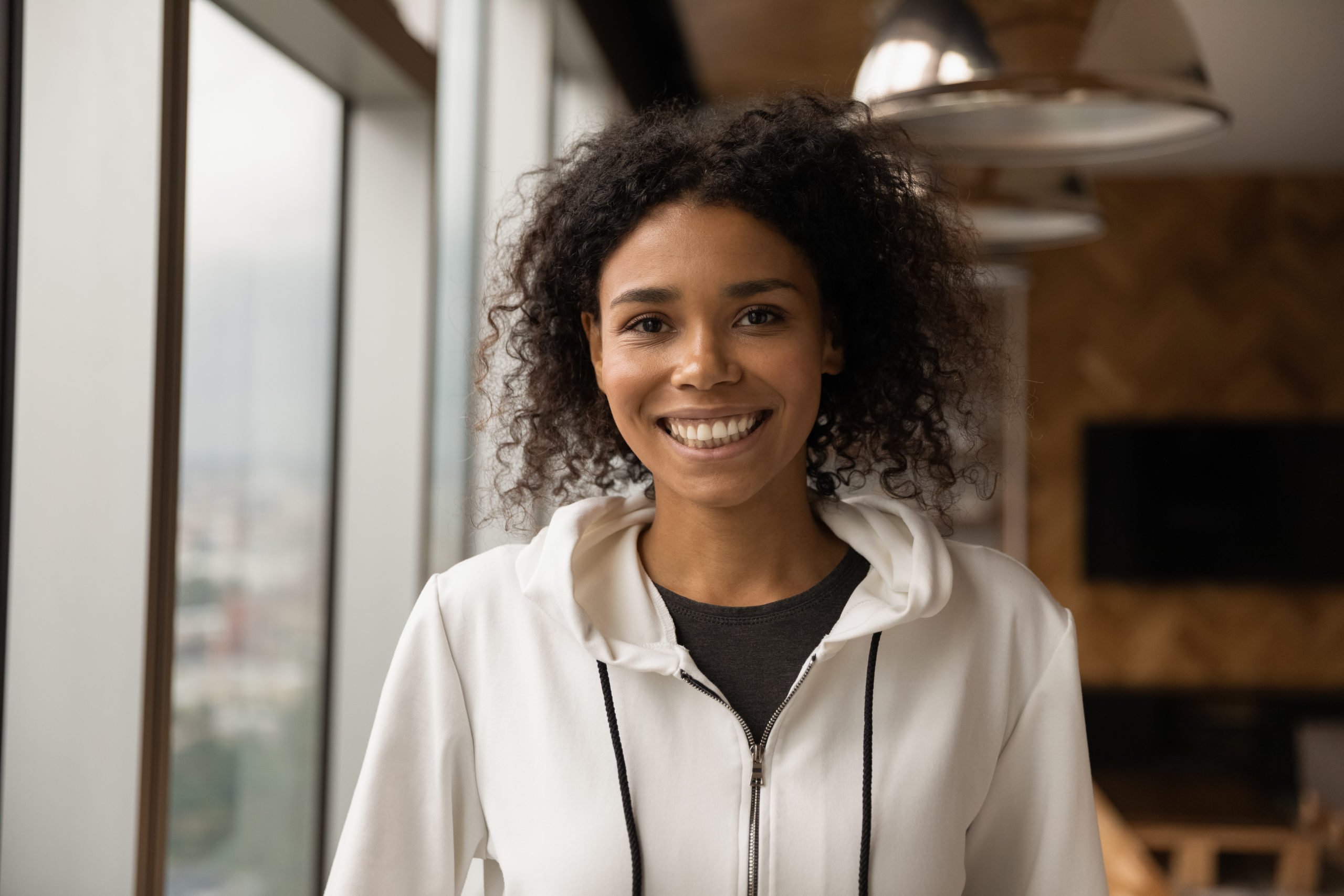
Tell us about the symptoms you have experienced and how you dealt with them?
Passing faeces in my urine which at first I thought was blood this was due to a fistula between my bladder and bowel caused by the stage 4 advanced bladder cancer.
Tell us about how you received your bladder cancer diagnosis?
I received it in person from a consultant after a sigmoidoscopy – it was originally thought it had originated in the bowel. It was only confirmed from pathology results it definitely originated in the bladder although before surgery they were sure it was bladder cancer.
Tell us about your feelings and emotions at the time you received your bladder cancer diagnosis?
Overwhelmed, shocked and upset. I faced a massively invasive total pelvic exenteration surgery which would last 12 hours and my only hope of survival as there were no palliative options open to me apart from pain control as cancer was so advanced. I also faced a life ahead with two stomas – a urostomy and a colostomy.
Who was the first person you told about your bladder cancer diagnosis?
My husband heard it at the same time as me. I then told on a joint call to my parents and my sister. It was such a difficult thing to do. I got support from everyone and my husband was my absolute rock throughout it all.
What life changes have you made since diagnosis?
I appreciate life so much more. I wake up grateful still to be here. without my surgery, I had about 2 weeks left to live. Here I am 6 years on and still currently cancer-free. I am passionate about advocating for stomas and helping to normalise them for people. I am also a volunteer at Fight Bladder Cancer and with my local MP’s support, got a parliamentary event sponsored in the Scottish Parliament earlier this year.
Tell us about your experience with bladder cancer treatment? How long did it last? Did you experience side effects?
There was no time for treatment – went straight to surgery to save my life. I think it is important to get all the facts. It helps to take someone to appointments to take notes for you and to support you. You are the patient and it is your body. You need to be empowered to make the right decision for YOU.
What advice would you give to others who may be newly diagnosed with bladder cancer?
I would say reach out to Fight Bladder Cancer. Their website has so much good information about all stages of bladder cancer. Stick to medical sites and try not to google. You may find an answer but it may not be medically factually true or right for your case. Go on social media – there are a lot of good people sharing positive stories on the other side.
Have you reached out to other bladder cancer patients or been part of a bladder cancer support group?
I am part of the Fight Bladder Cancer online group. I found support groups after my surgery and have not needed much support but I do provide support to others and also on a 1-2-1 basis.
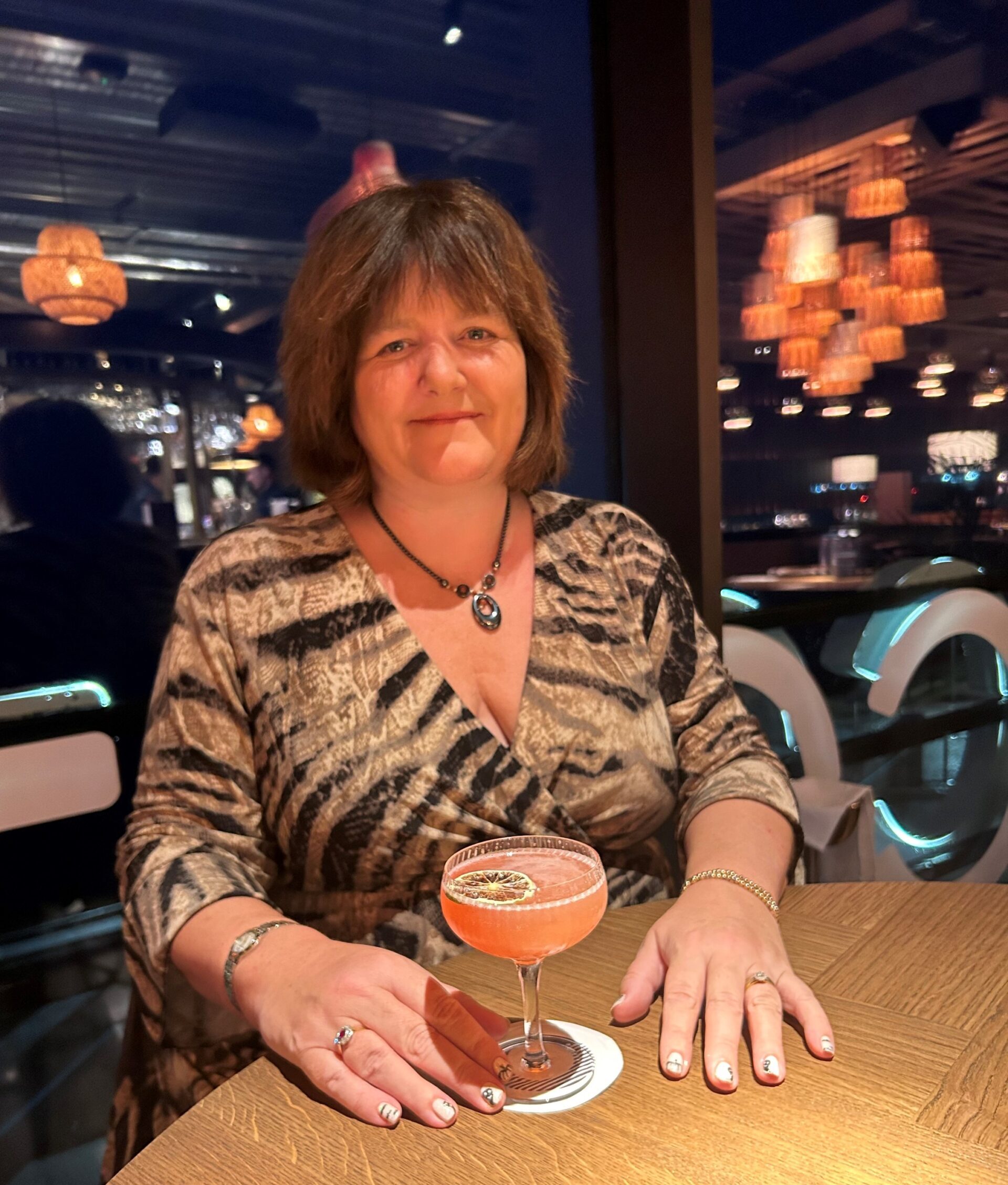
Tell us about the symptoms you have experienced and how you dealt with them?
I started needing to pee a lot, which developed into urge incontinence within 6 months.
Tell us about how you received your bladder cancer diagnosis?
I awoke from a rigid cystoscopy to the surgeon telling me I have cancer.
What life changes have you made since diagnosis?
I was a Tactical Response K9 Handler in the Australian Federal Police and an egotistical person who thought he was indestructible. I don’t think that anymore and I’m no longer driven by my selfishness.
Tell us about your experience with bladder cancer treatment? How long did it last? Did you experience side effects?
I spent 2016 with symptoms and 2017 doing 2 times 6-week BCG therapies plus 3 times rigid cystoscopies with reoccurring tumours. 2018 recovering from a radical Cystectomy with robotic neo bladder construction plus 4 months of chemotherapy.
What advice would you give to others who may be newly diagnosed with bladder cancer?
It’s ok to be scared It’s ok to cry It’s ok to be angry It’s ok to be overwhelmed You will learn from this journey.
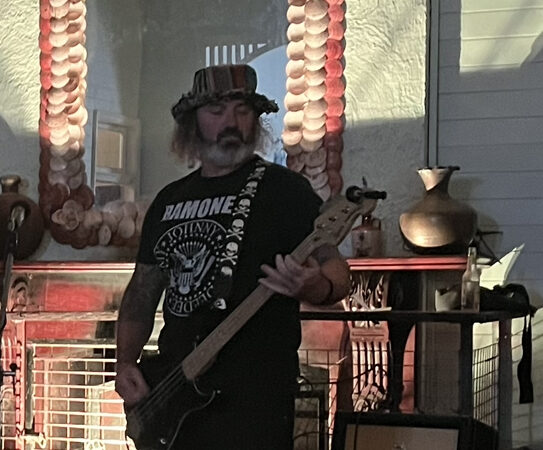
Tell us about the symptoms you have experienced and how you dealt with them?
The main symptom I noticed was blood in my urine. It was quite alarming to see, and I knew immediately that I needed to see a doctor about it.
Tell us about how you received your bladder cancer diagnosis?
After finding blood in my urine, my doctor sent me to a specialist. The specialist confirmed that I had bladder cancer.
Tell us about your feelings and emotions at the time you received your bladder cancer diagnosis?
I felt confused and couldn’t believe it at first. It took me a while to accept the diagnosis.
Who was the first person you told about your bladder cancer diagnosis?
I told my wife first. She was very supportive and had many questions. Eventually, we both came to terms with it and prepared for what was ahead.
What life changes have you made since diagnosis?
I haven’t made many changes to my life, but my bathroom routines are different now. I’ve started paying more attention to my health.
Tell us about your experience with bladder cancer treatment? How long did it last? Did you experience side effects?
I stayed in the hospital for 10 days. It took two weeks to start moving normally again, and another two weeks before I could start running again. Running is my hobby. I started with 2 km, then added another km, and four months later, I ran a half marathon.
What advice would you give to others who may be newly diagnosed with bladder cancer?
For me, it didn’t change my daily life too much. After the surgery, I felt more tired at first, but that was 8 years ago. My sex life has changed, but my advice is to use your imagination.
Have you reached out to other bladder cancer patients or been part of a bladder cancer support group?
Yes, I’m part of a bladder cancer organisation in Norway. I’ve supported others who are similar to me in lifestyle, age, and gender.
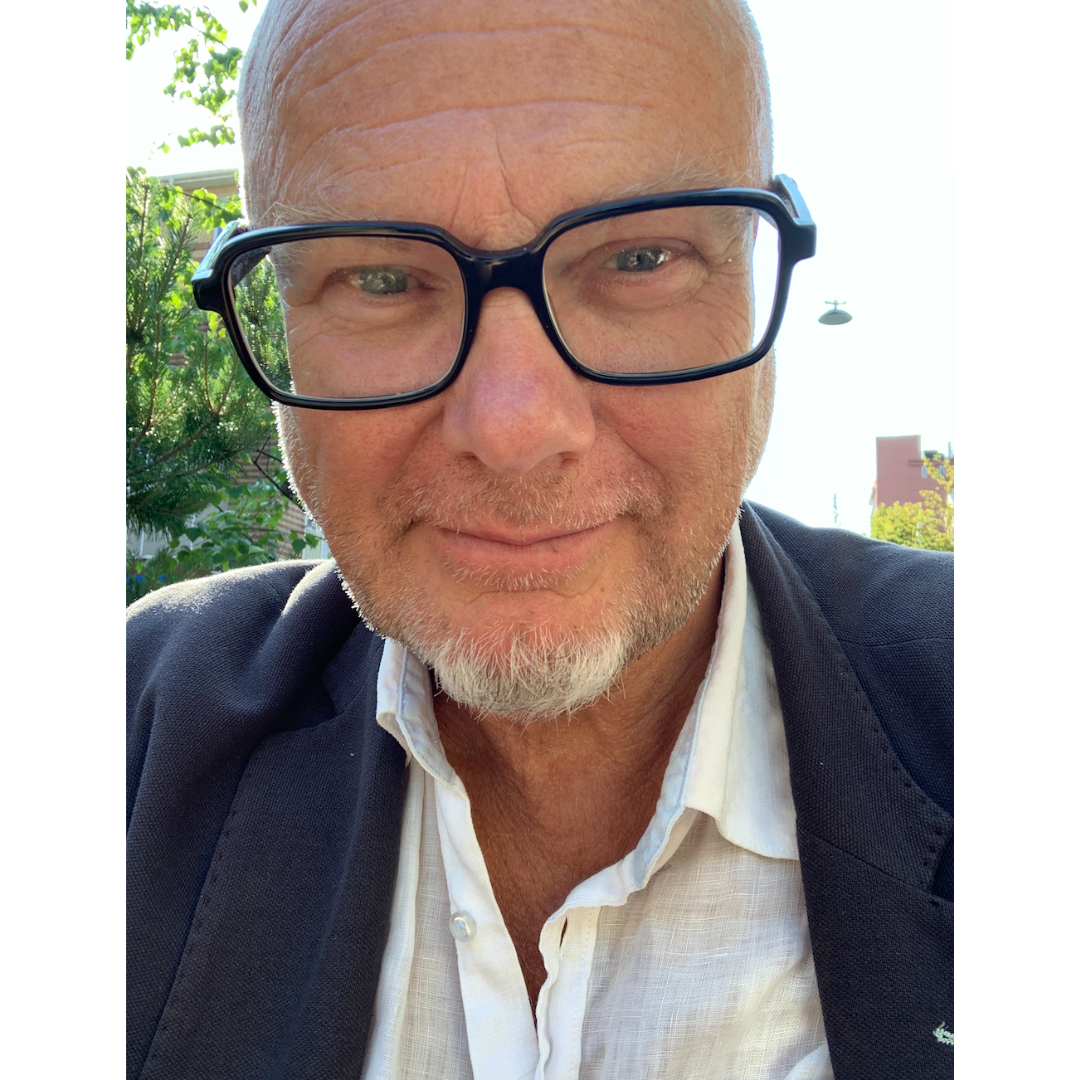
What life changes have you mde since diagnosis?
After 3 years of treatments, my husband had a radical cystectomy and now six years later, he is living life to the fullest with almost no complications or inconvenience. Having his bladder removed was the best thing for him and he now enjoys a robust quality of life at age 94!
Which symptoms have you experienced and how have you dealt with them?
My husband’s symptoms were a dull pain in the abdomen and blood in the urine.
What advice would you give to others who may be newly diagnosed with bladder cancer?
Ask a lot of questions, exhaust all new therapeutics, especially immunotherapies and new combo therapies, explore and insist on clinical trials, but if it comes to radical cystectomy being the only option, know that it can change your life for the better. Don’t be afraid of it!
Have you reached out to other bladder cancer patients or been part of a bladder cancer support group?
Yes. The Greenberg Bladder Cancer Institute at Johns Hopkins hosts educational and support group programs, and a special support group for women (only) with bladder cancer. The talks are recorded and available on the website. The “Grand Round” talks are presented monthly (save for a break during the summer): bladdercancer@jhmi.edu
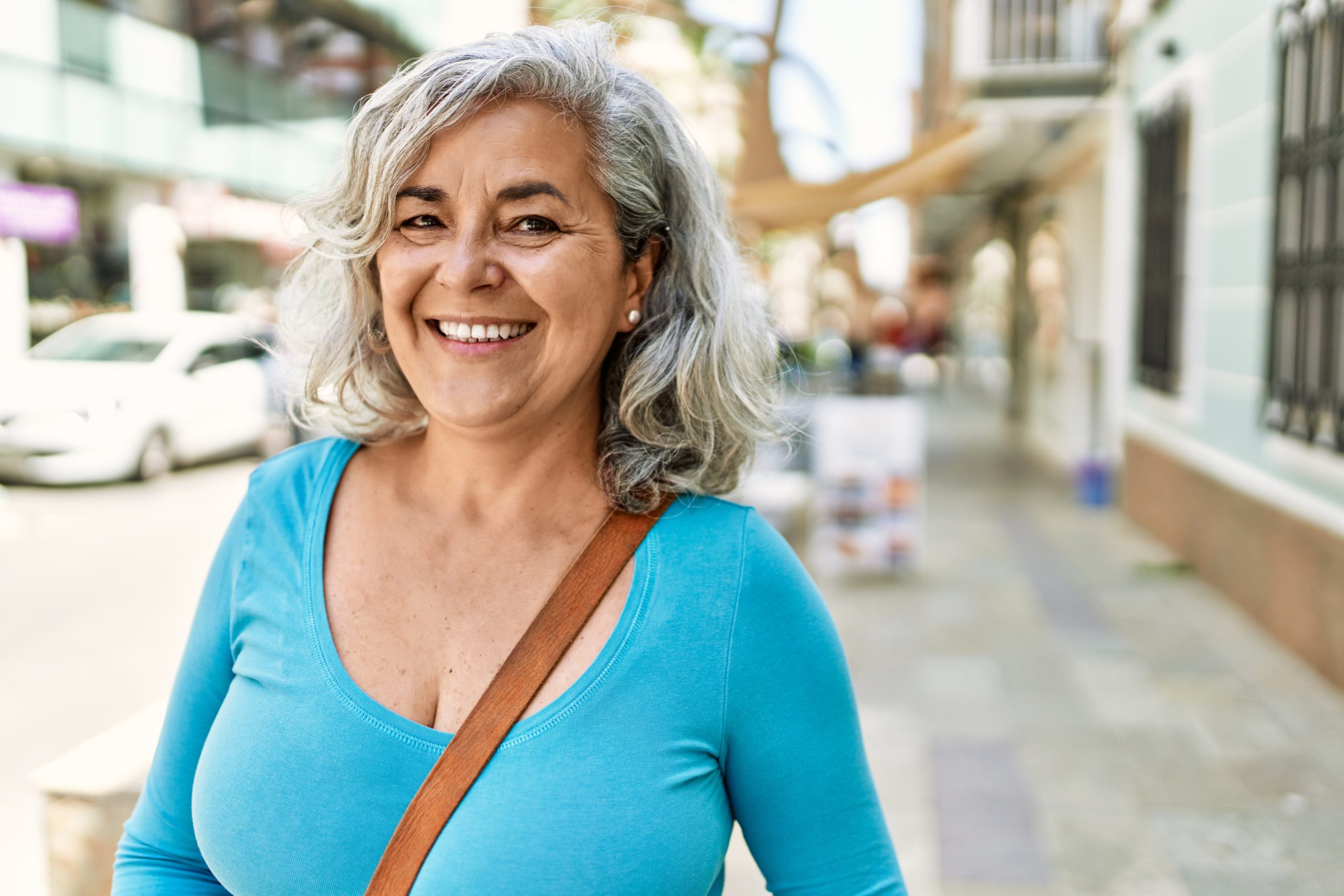
Tell us about the symptoms you experienced and how you dealt with them.
In 2010, I noticed blood in my urine. This alarming symptom was impossible to ignore, so I promptly sought medical advice.
Tell us about how you received your bladder cancer diagnosis.
My diagnosis came after a biopsy revealed a grade 4 cancerous tumor localized in my bladder. Thankfully, it hadn’t metastasized, but it was clear that the tumor needed to be removed, followed by immunotherapy treatment to prevent its return.
Tell us about your feelings and emotions at the time you received your bladder cancer diagnosis.
Initially, I felt a mix of concern and relief – concern about the gravity of the situation, but relief that the cancer hadn’t spread beyond the bladder. I adopted a pragmatic mindset, determined to face the surgery and treatment head-on.
Who was the first person you told about your bladder cancer diagnosis?
The first person I shared the news with was my wife. Together, we approached the challenge with faith and confidence, determined to confront reality with strength and hope.
What life changes have you made since your diagnosis?
Surprisingly, my day-to-day life hasn’t changed drastically. The immunotherapy and subsequent chemotherapy treatments weren’t invasive, allowing me to maintain much of my usual routine.
Tell us about your experience with bladder cancer treatment. How long did it last? Did you experience side effects?
Immunotherapy was effective in the initial years, but unfortunately, the tumor returned, necessitating additional surgeries to remove recurring tumors. Thankfully, these new tumors were of a lower grade (grade 2), and the treatments were manageable.
What advice would you give to others who may be newly diagnosed with bladder cancer?
Pragmatism, faith, and confidence are key. There are effective treatments for this type of cancer, and often, your everyday life doesn’t have to change significantly. Stay focused on the path forward.
Have you reached out to other bladder cancer patients or been part of a bladder cancer support group?
I haven’t had the opportunity to join a support group, as I wasn’t aware of such communities.
